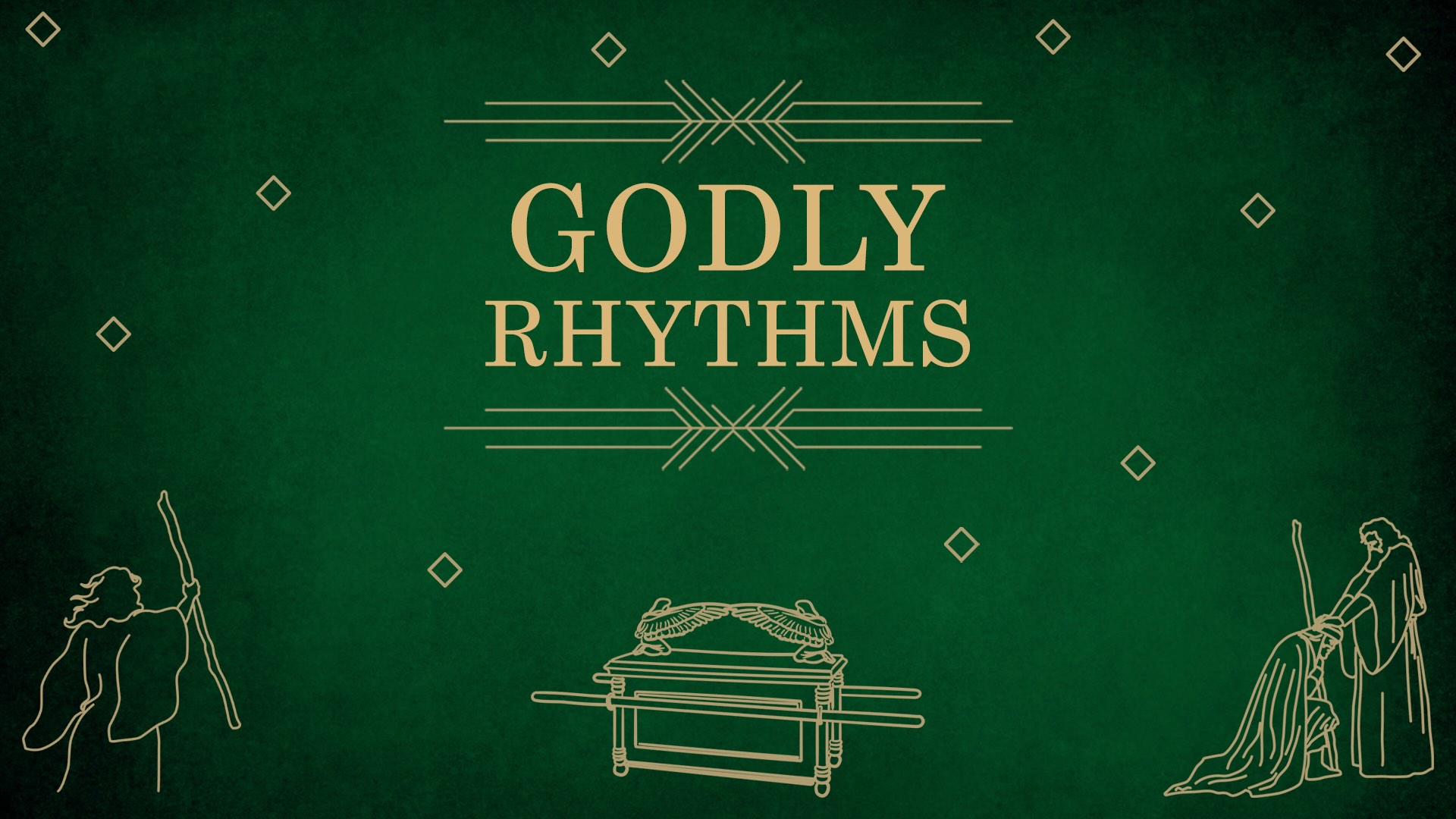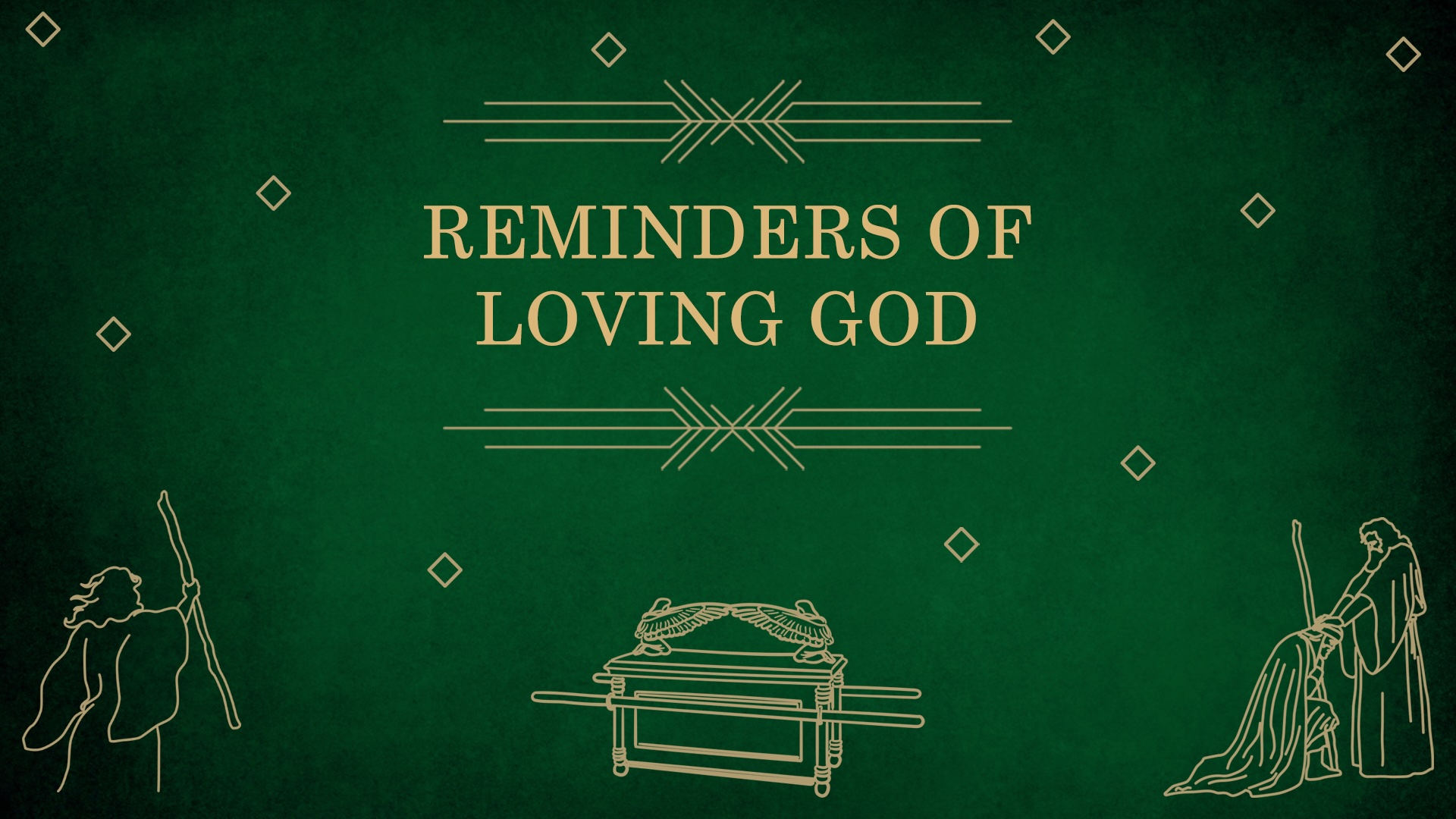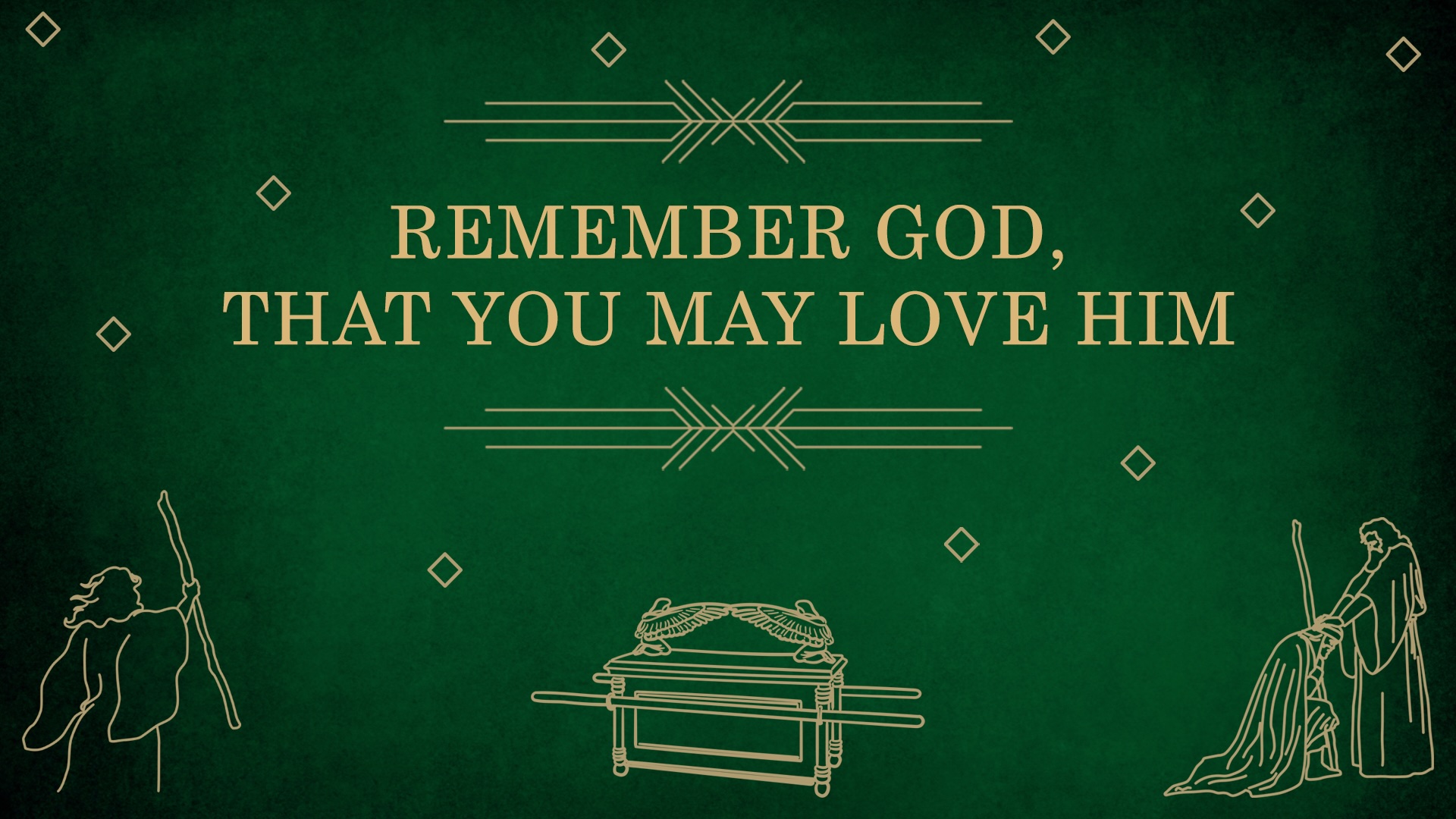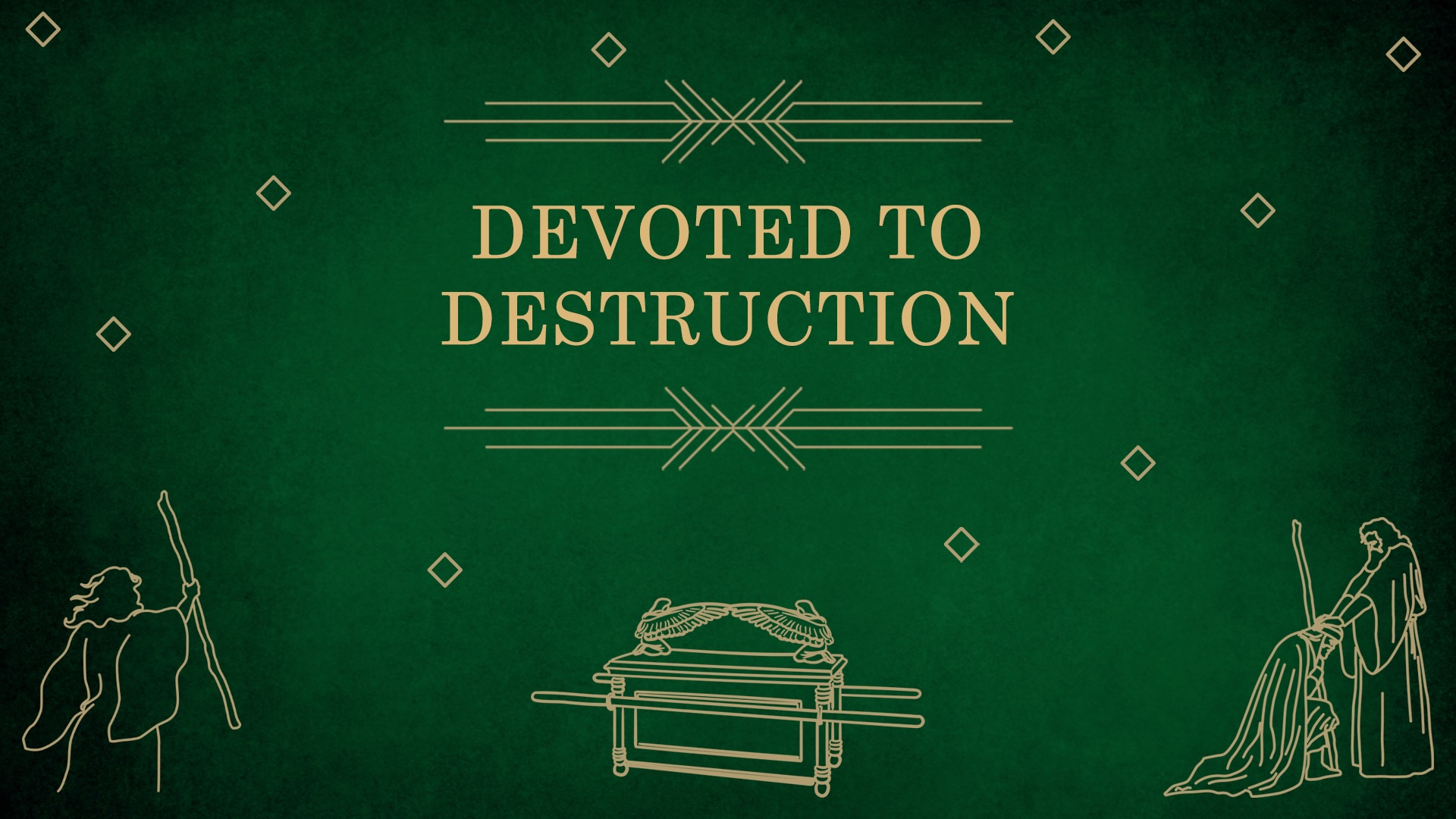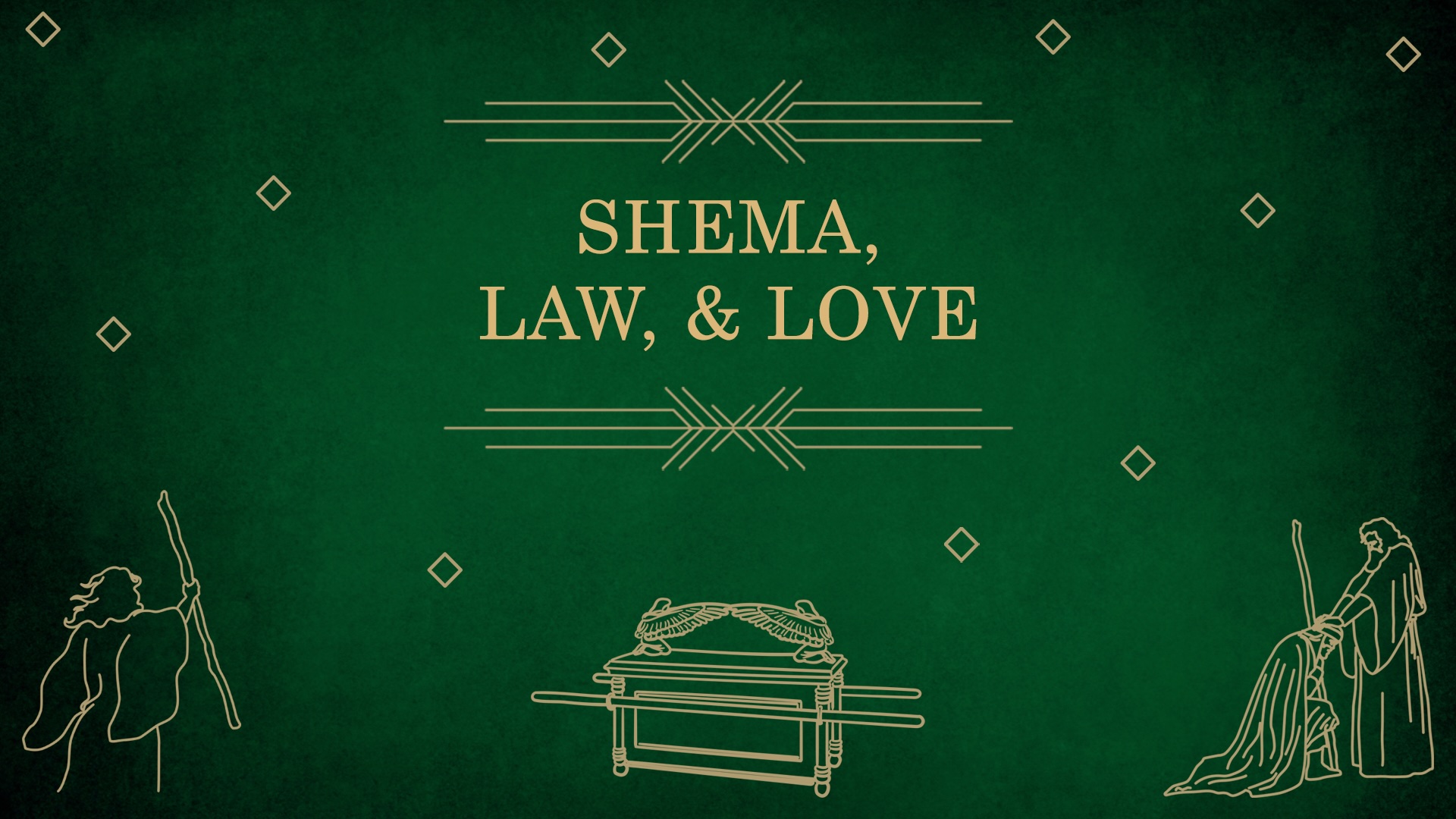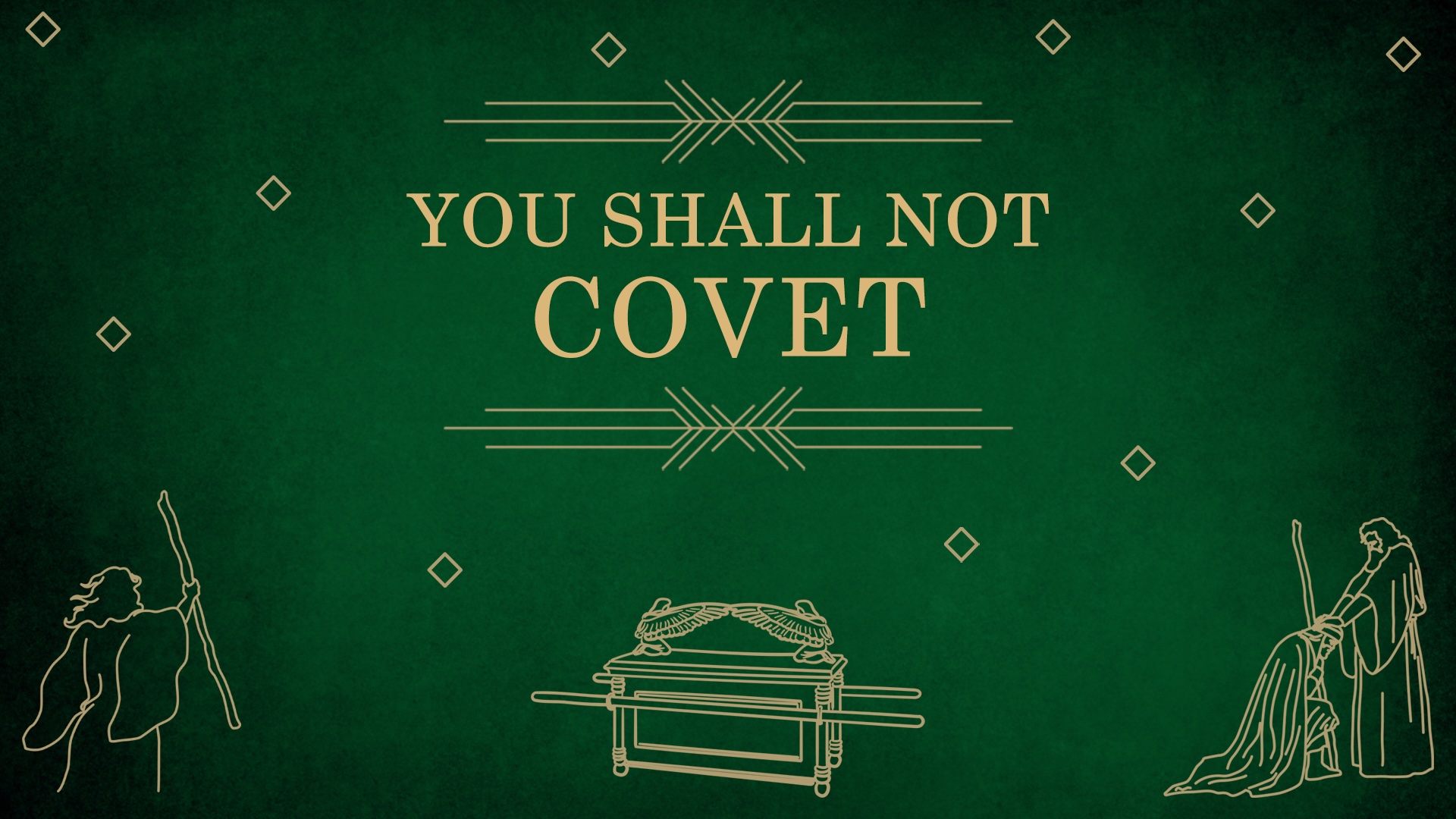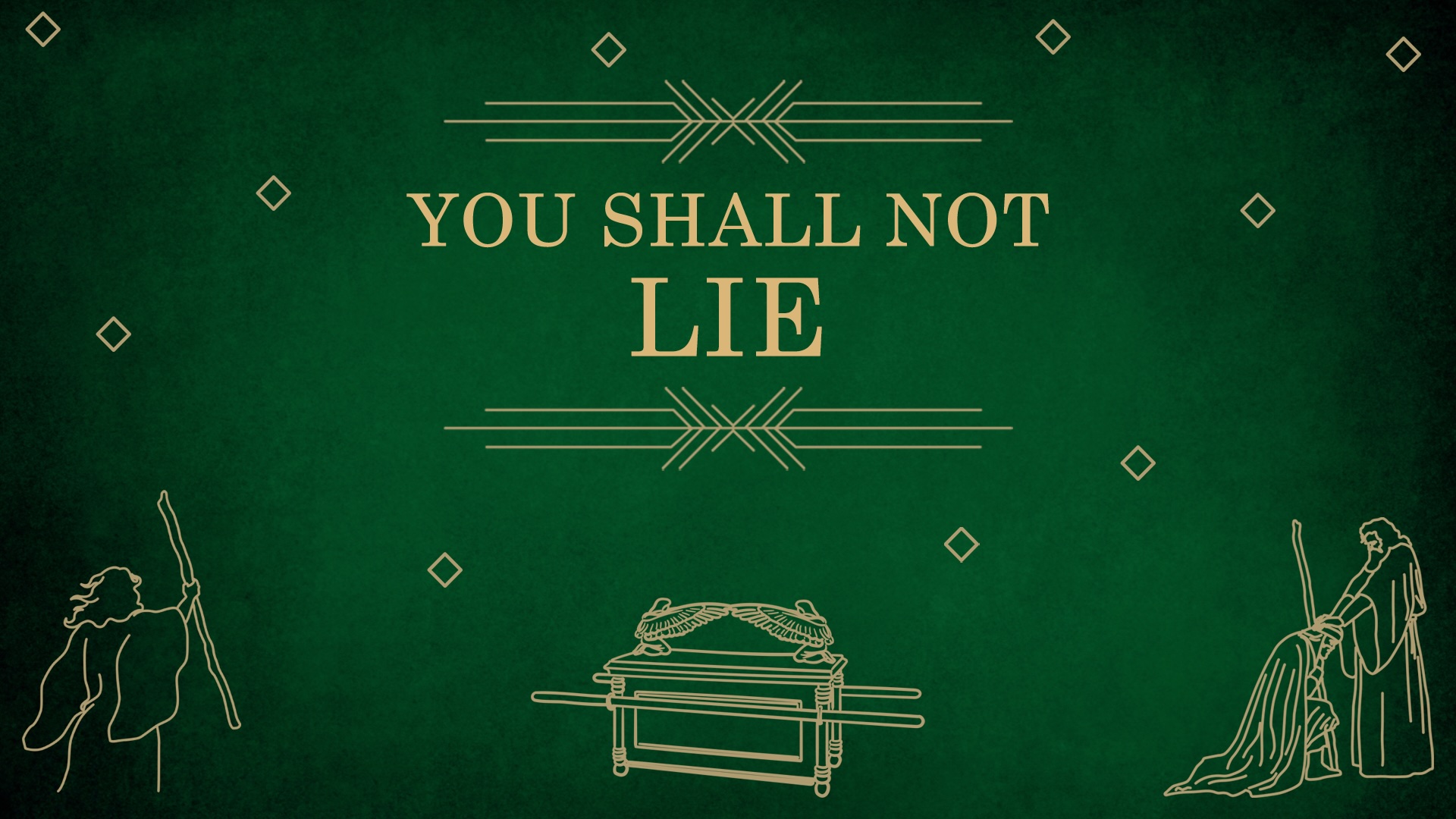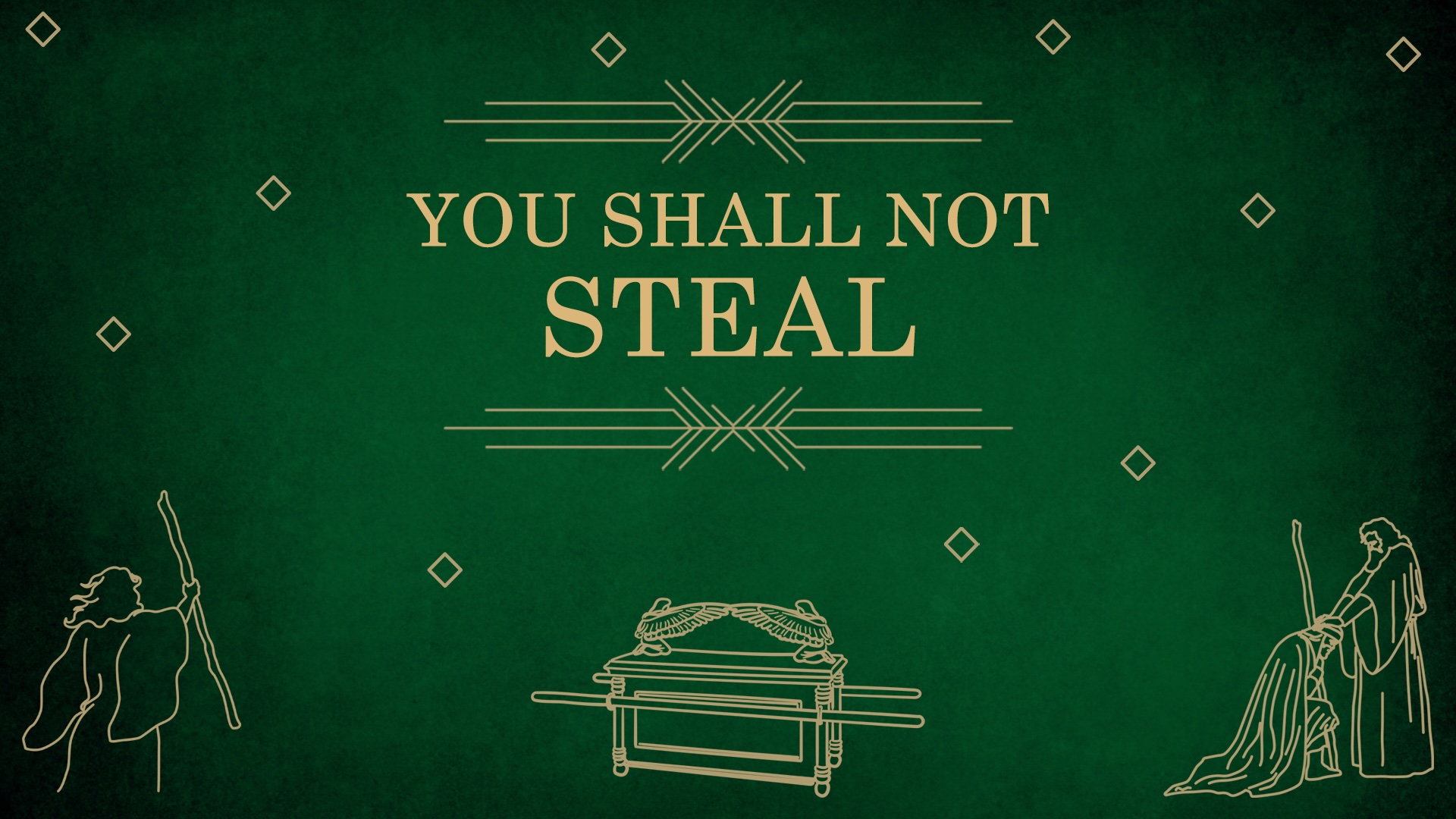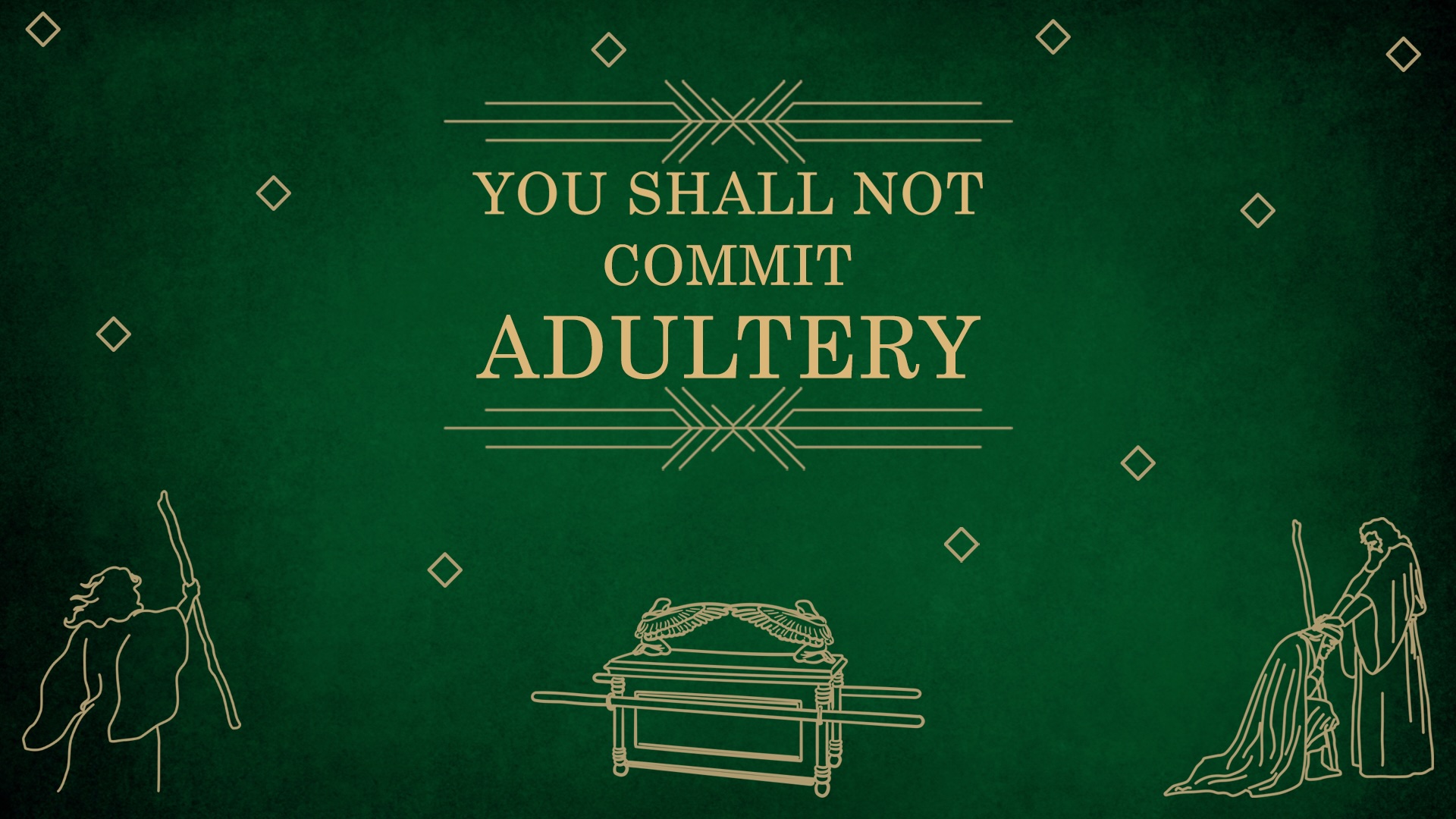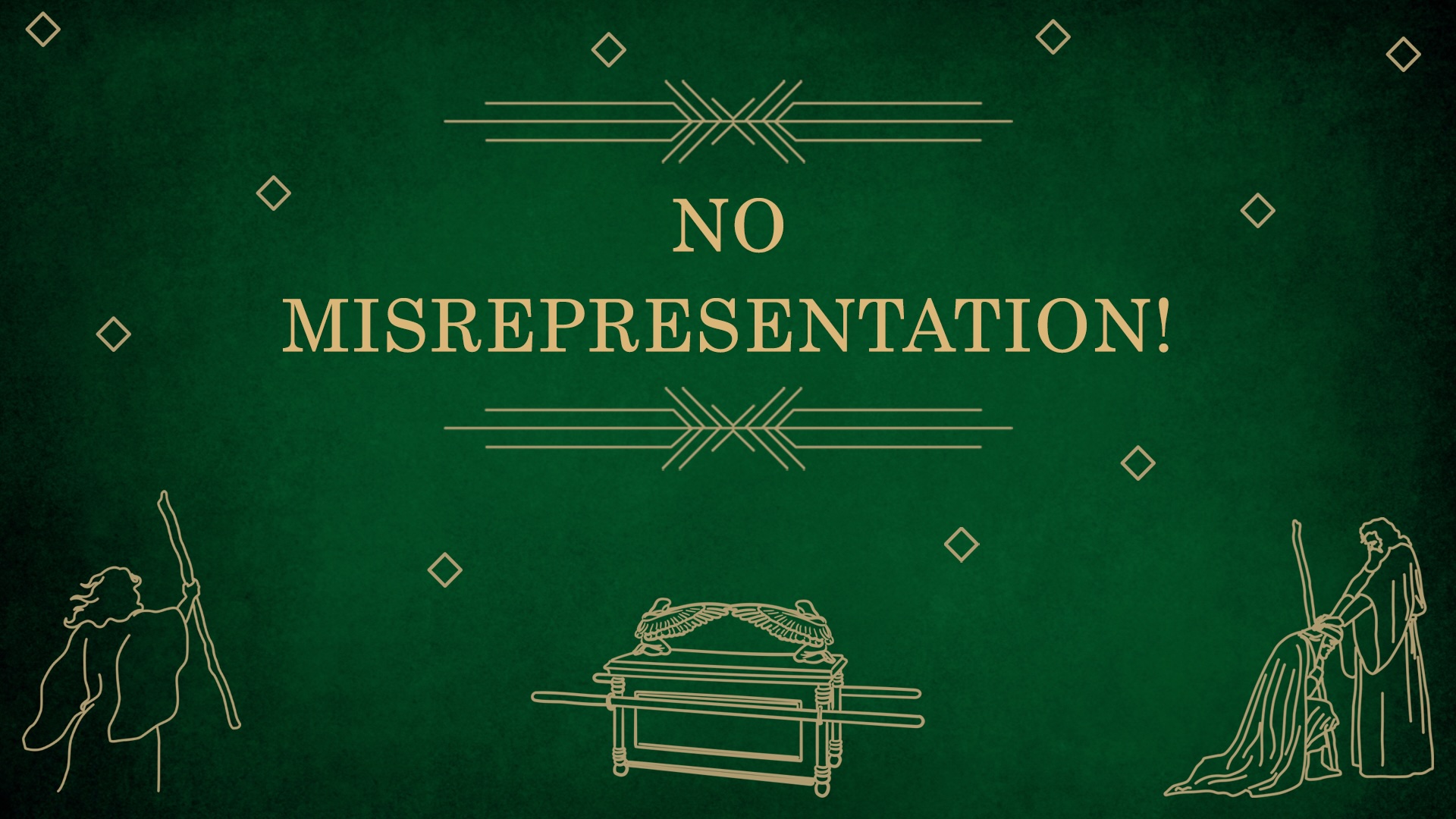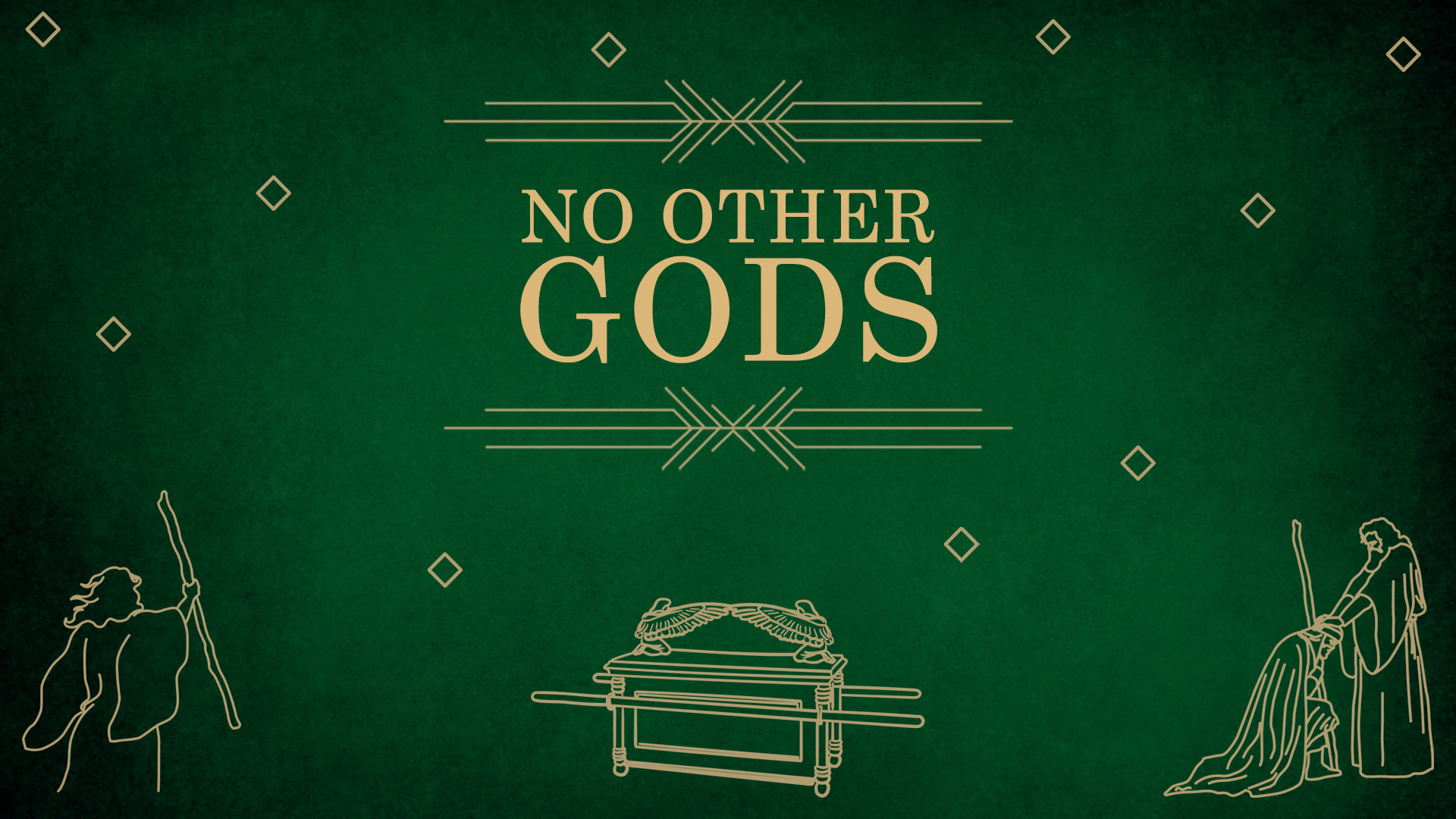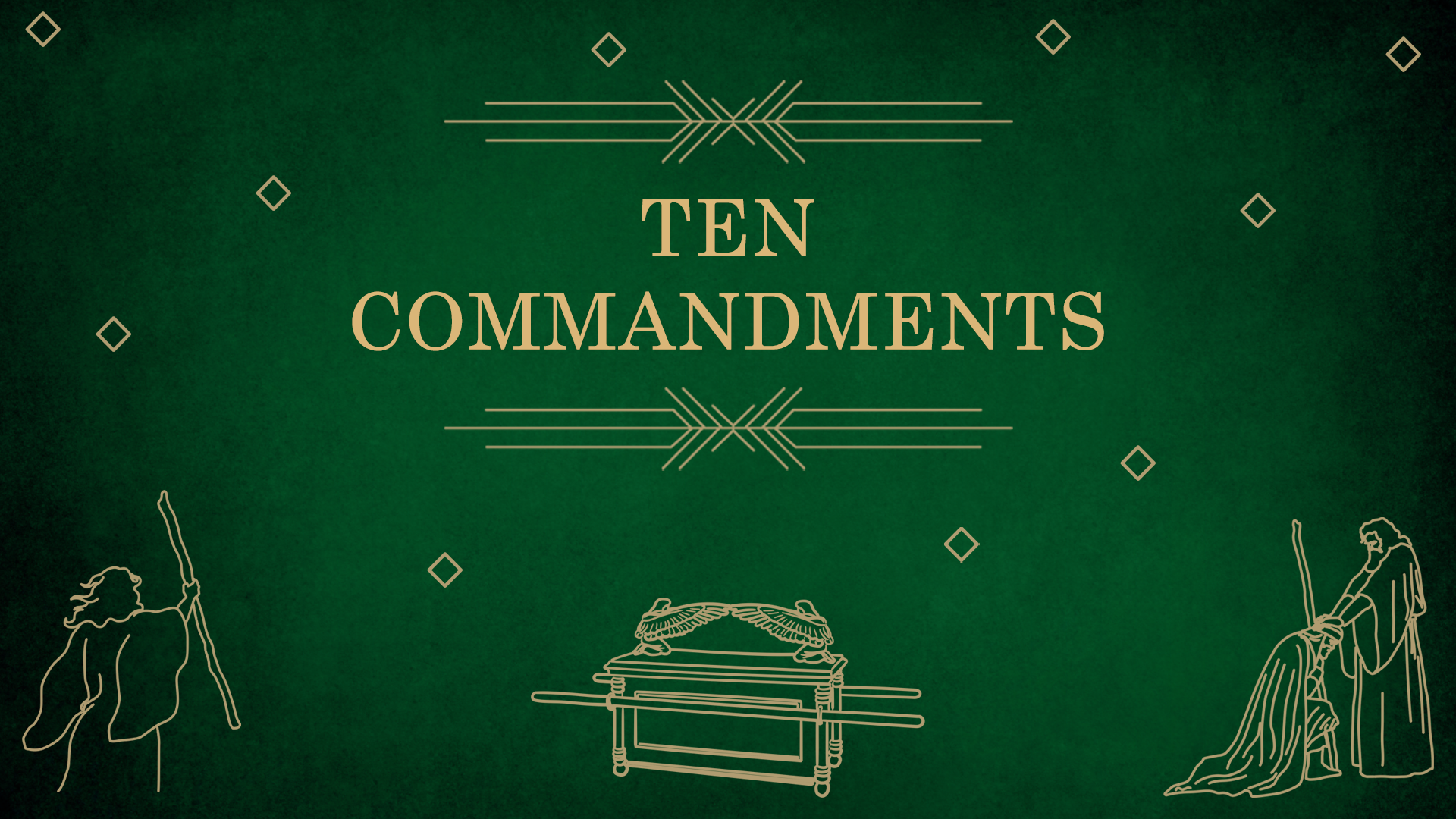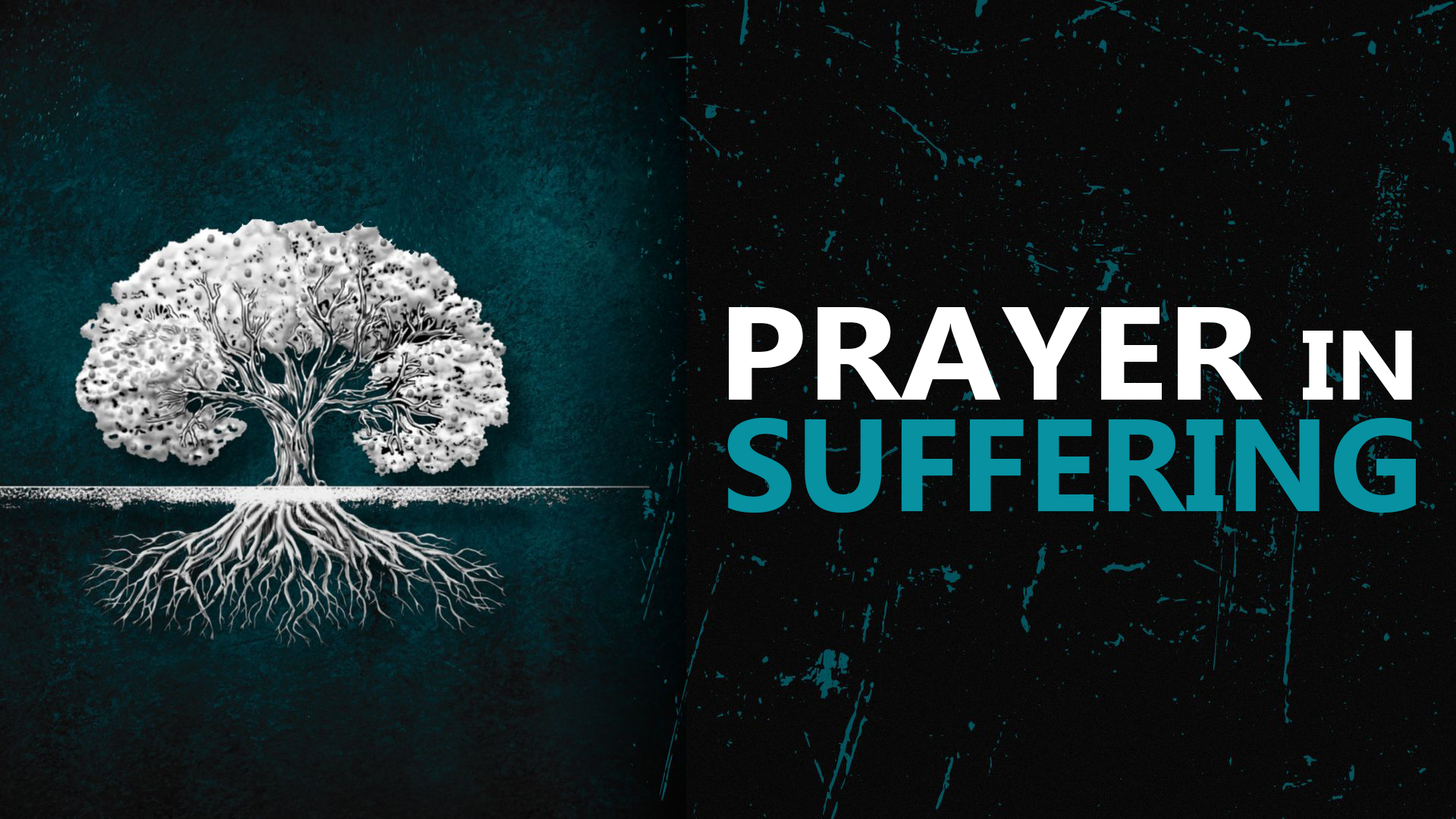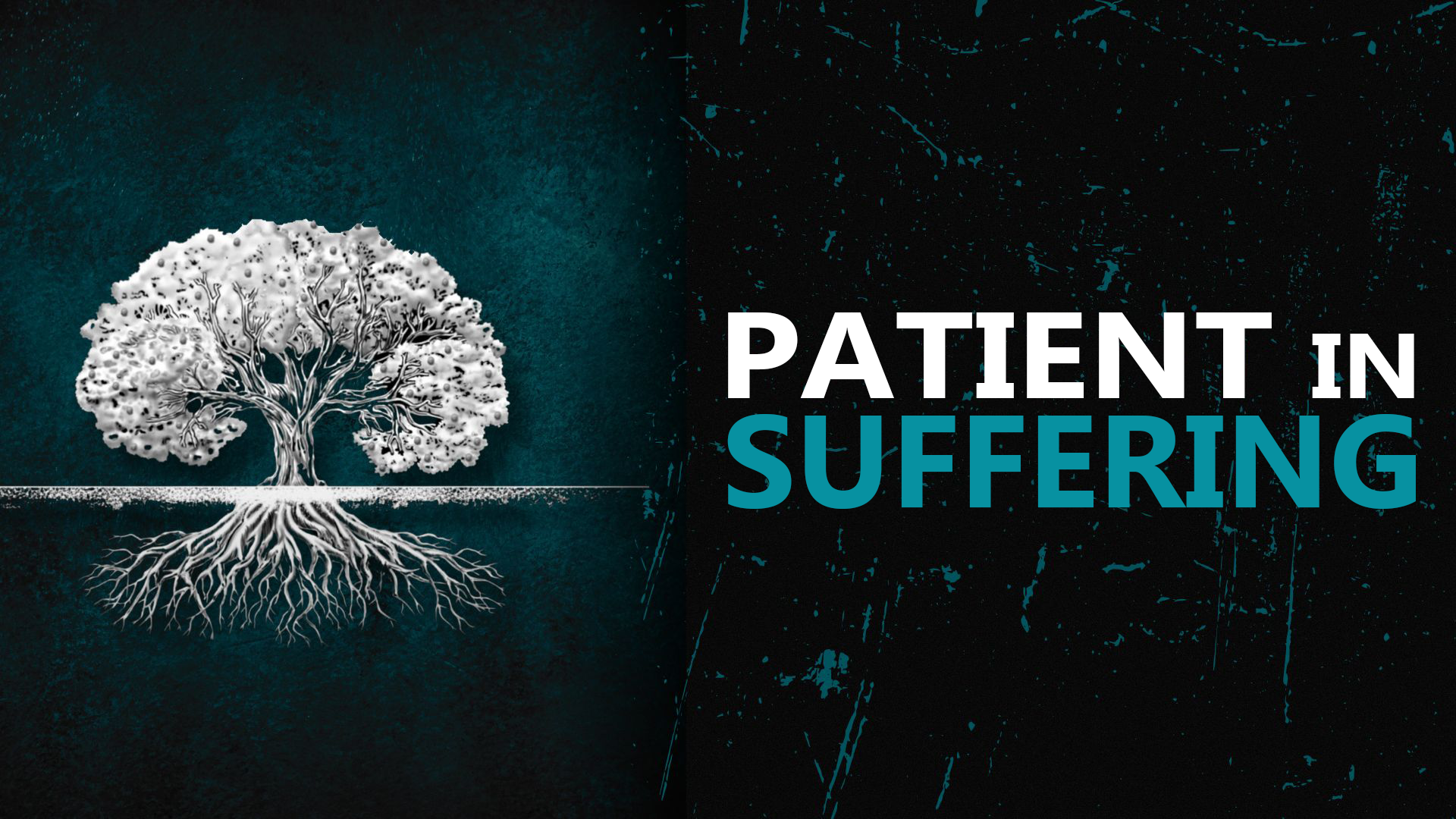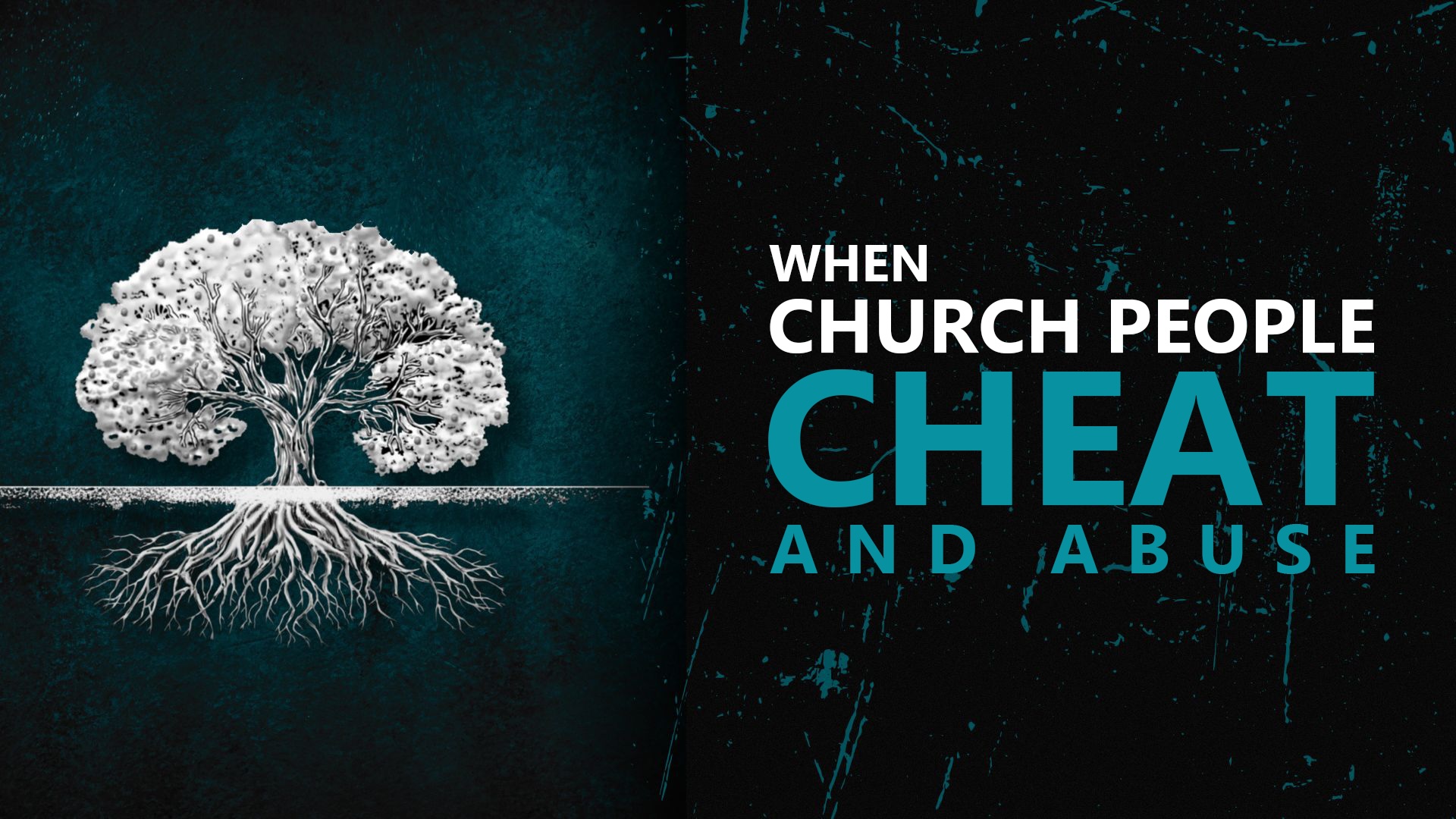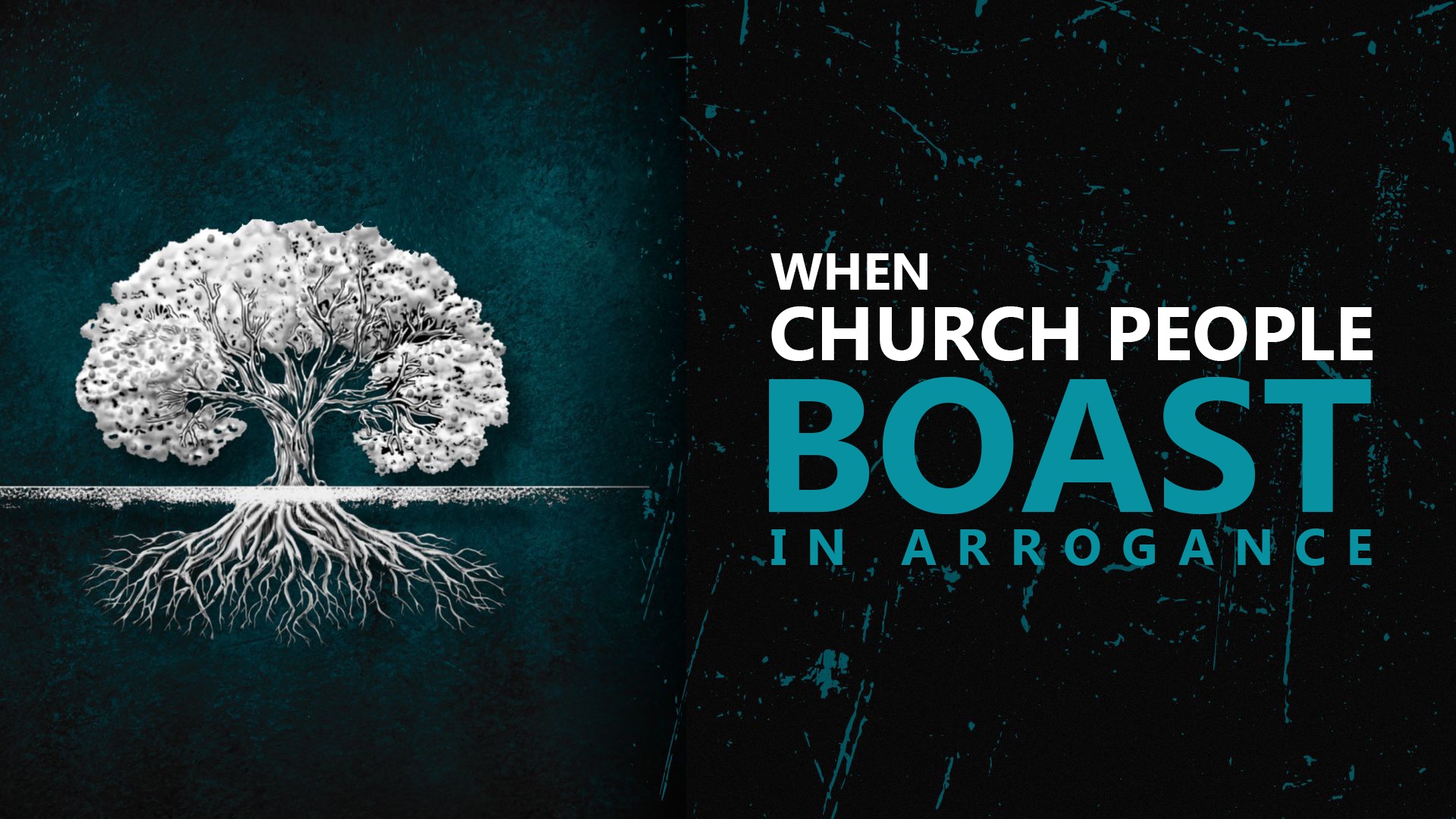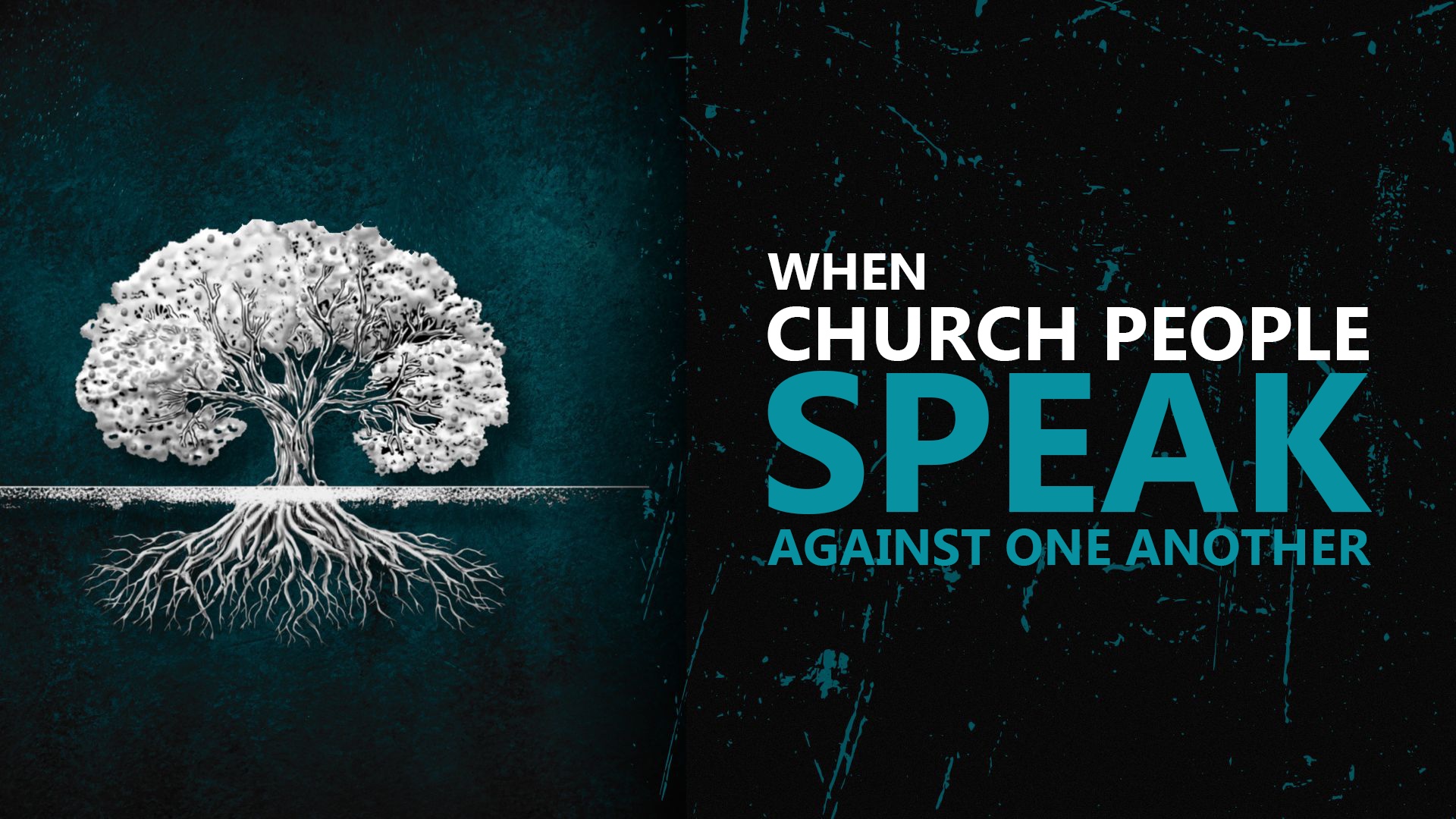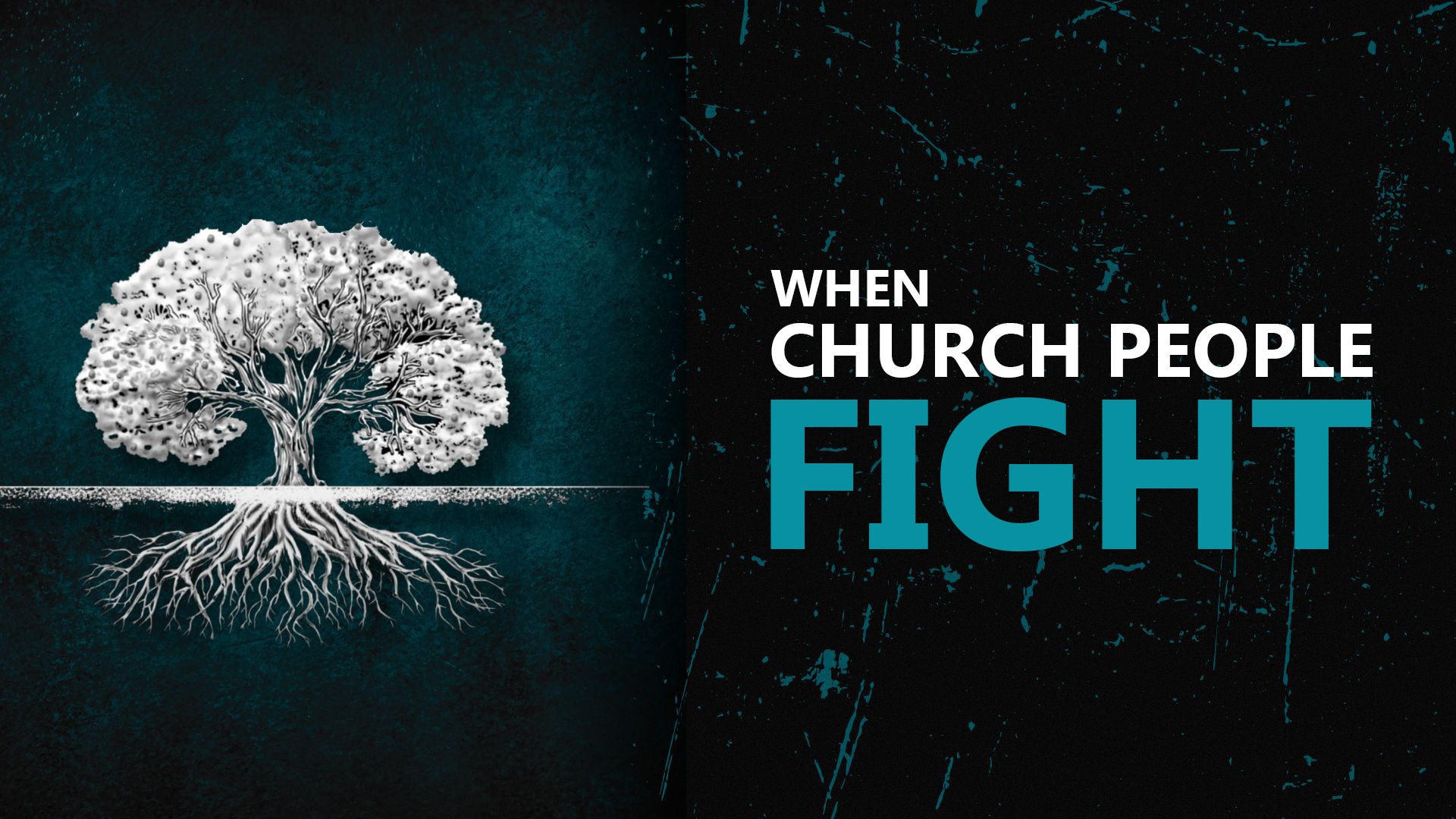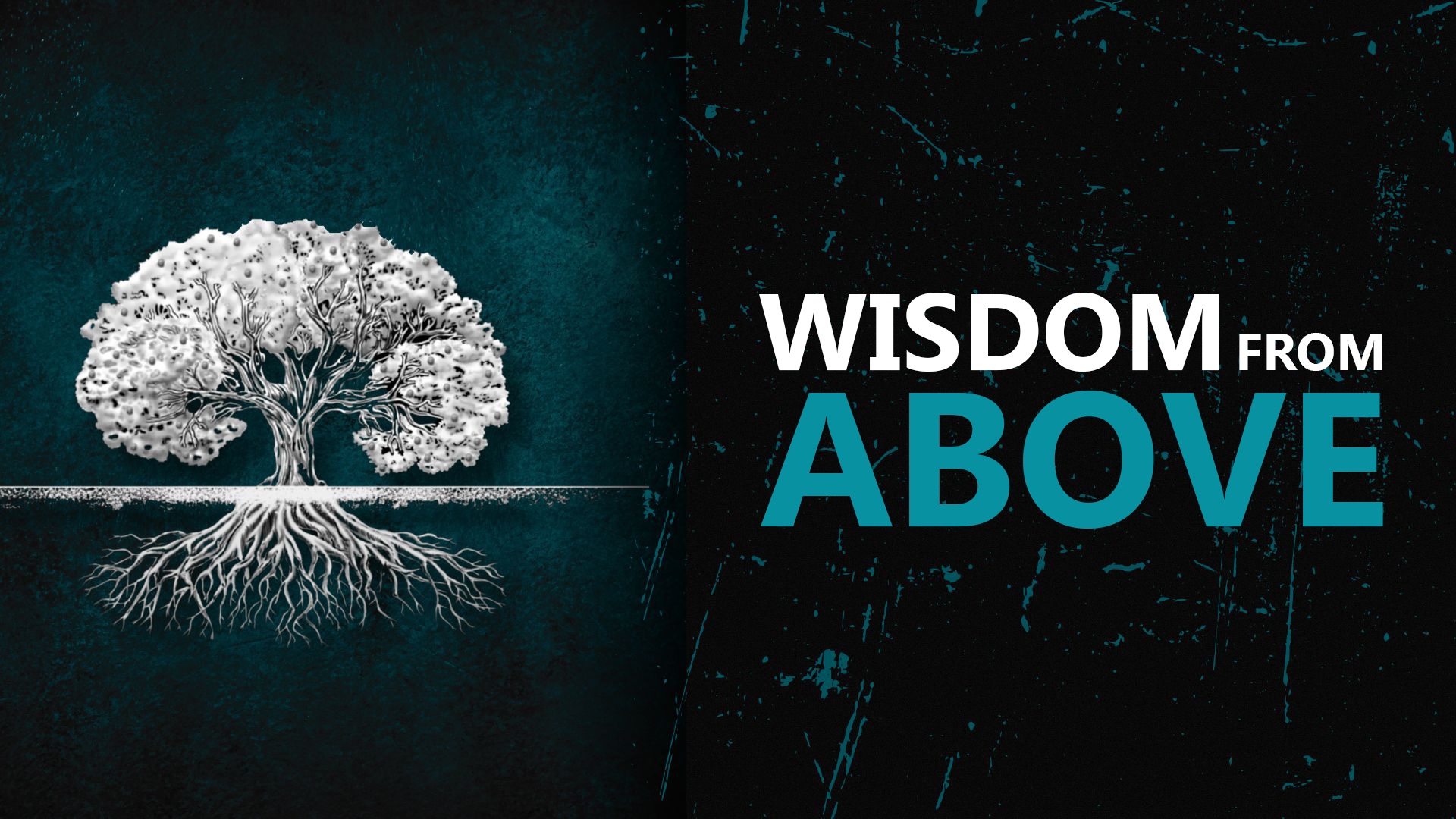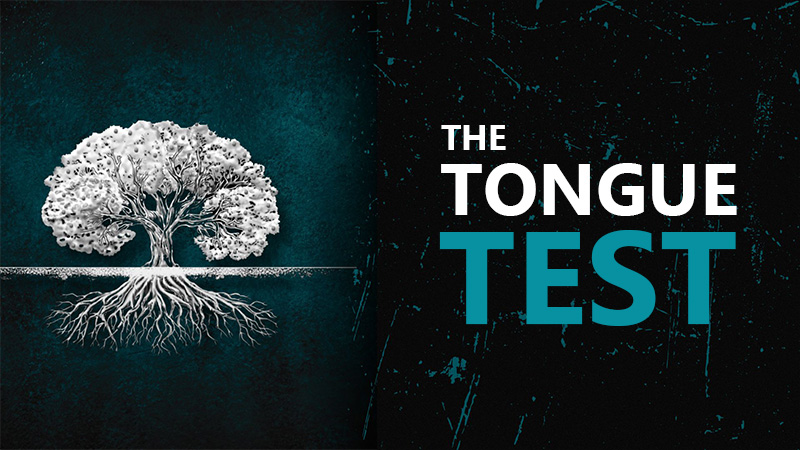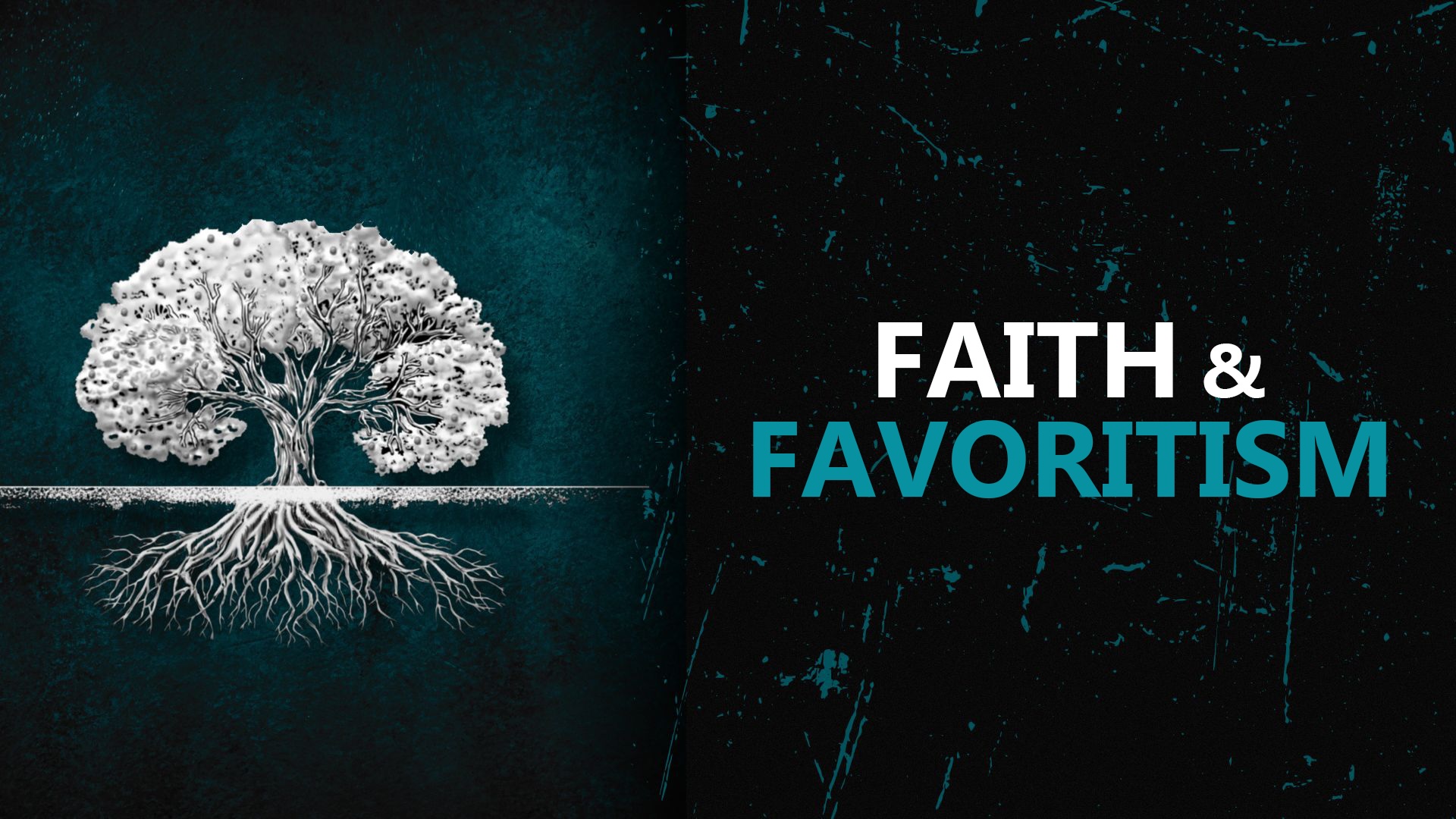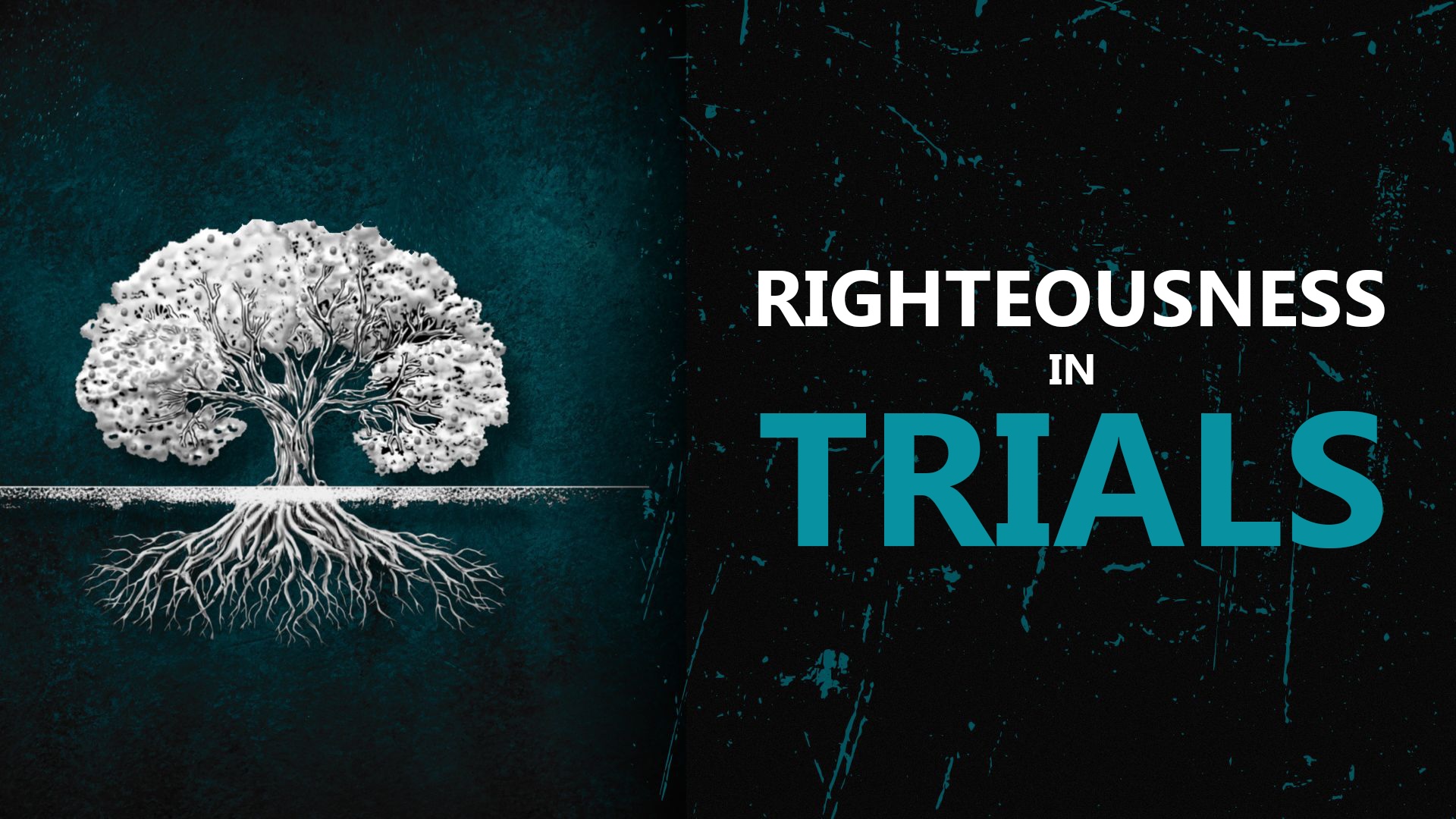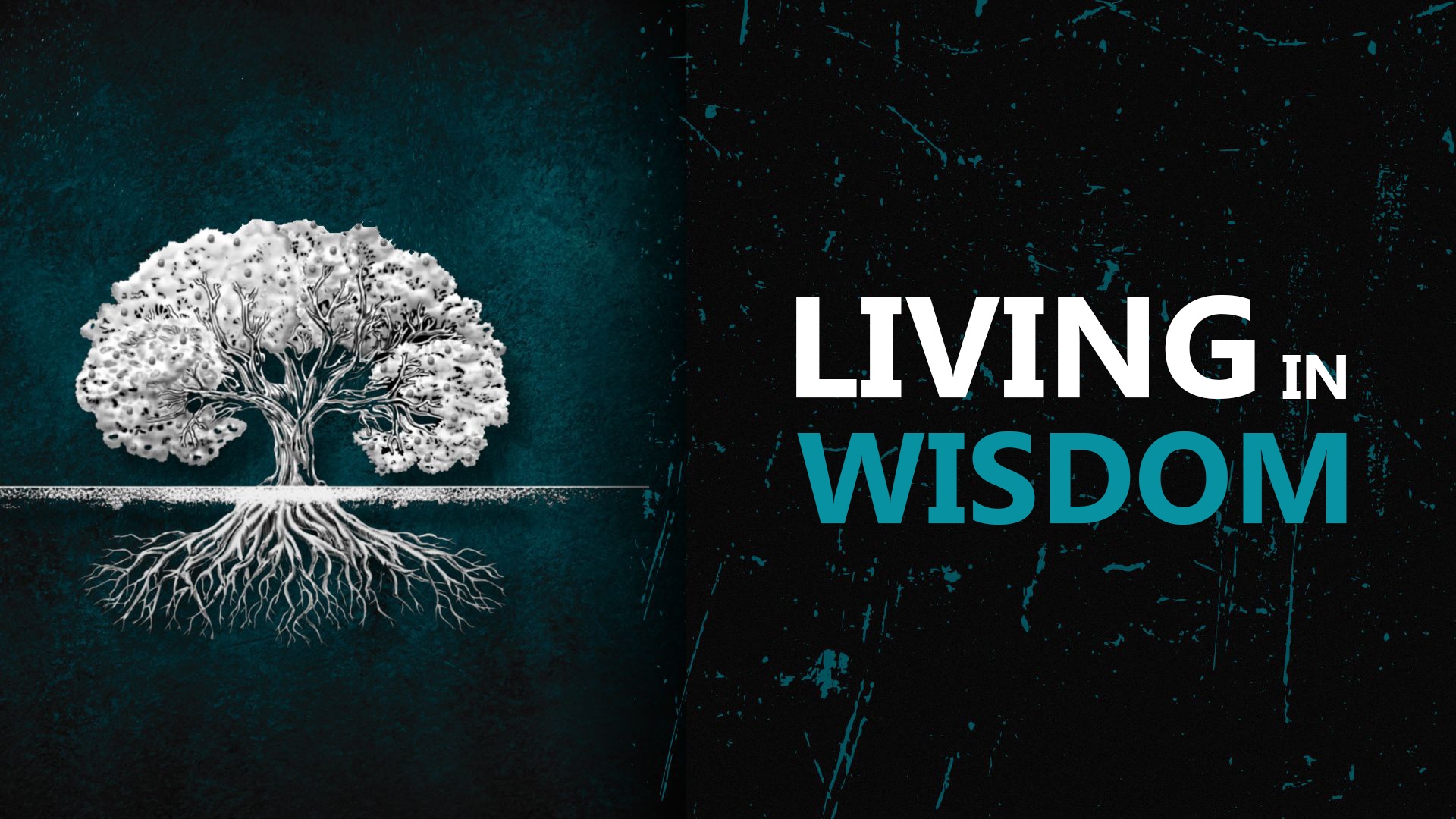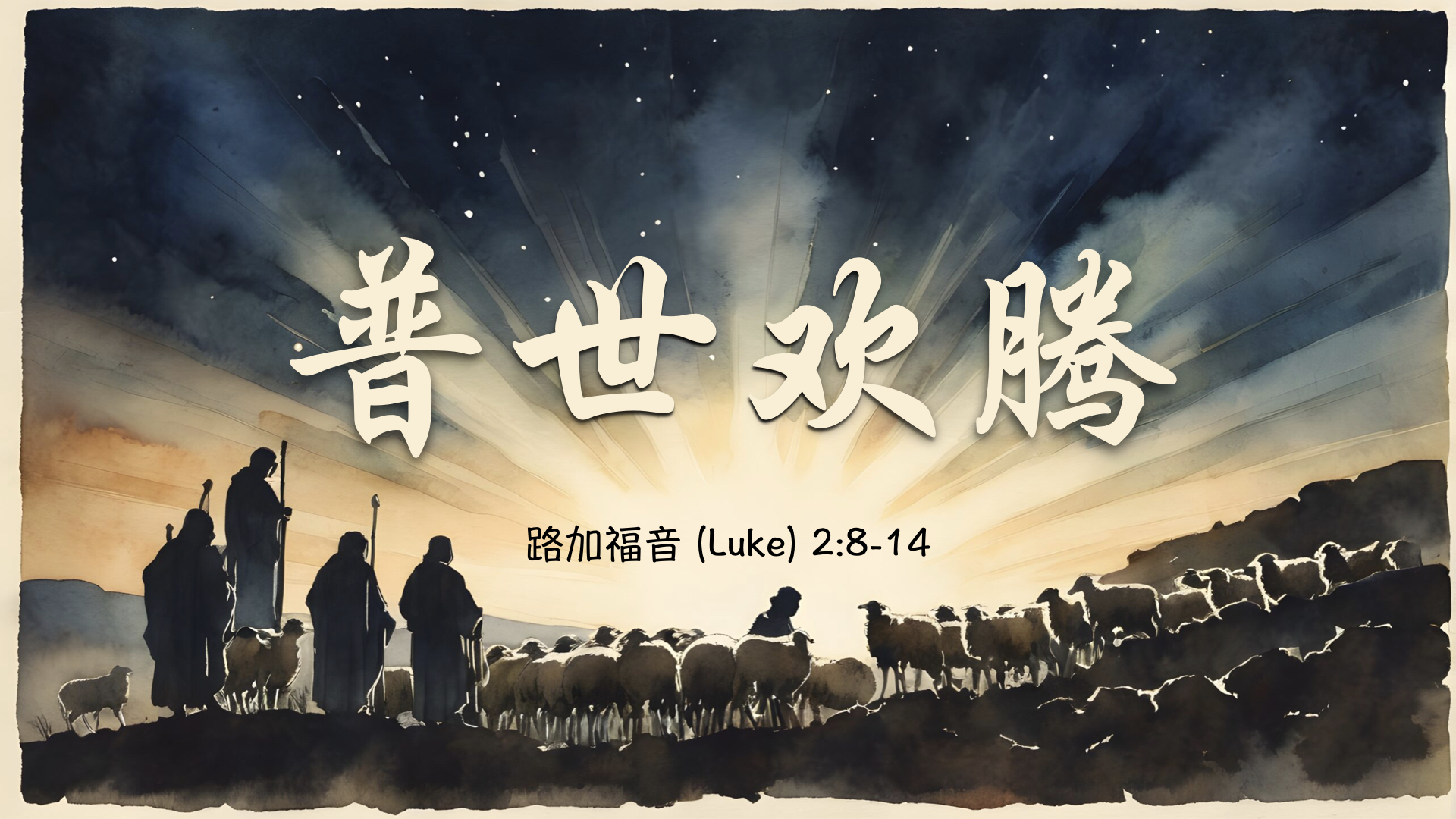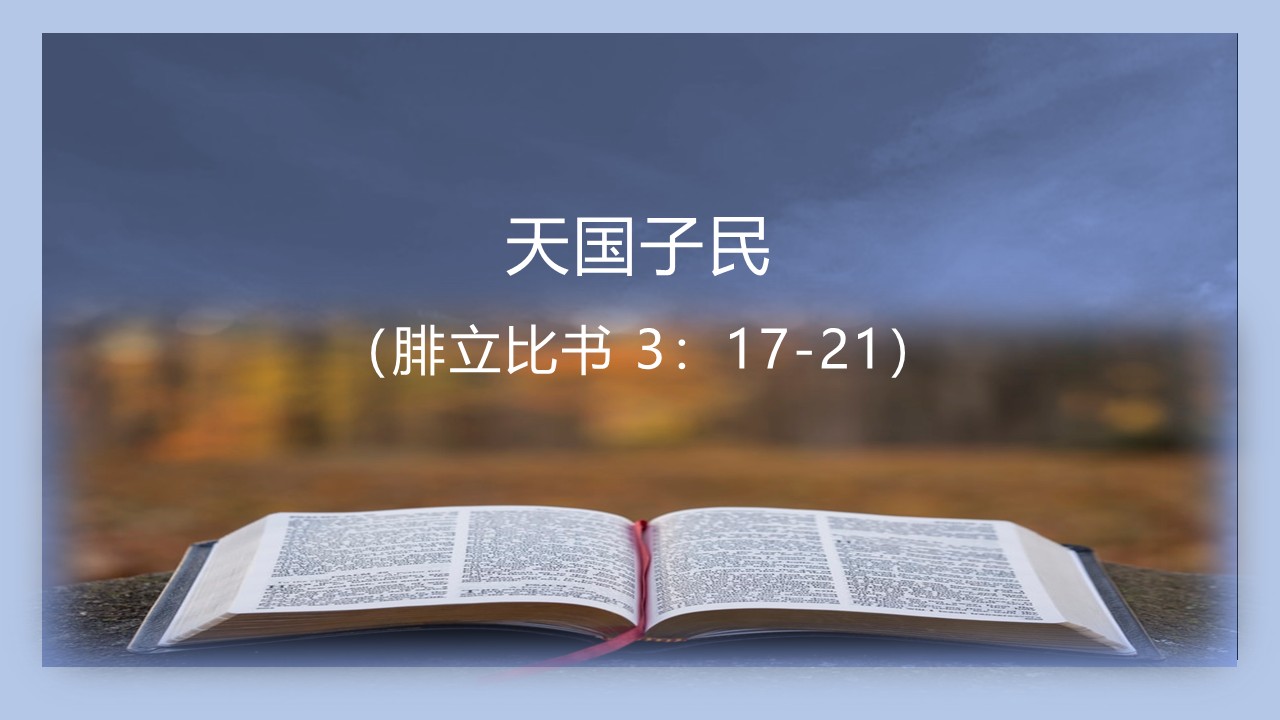Overview
Overview
The wise look at and go through trials in a very different way.
Instead of wavering and doubting the worth of God, the wise see
further than the average man and:
1. Rejoice
He counts it all joy, because he knows sufferings work steadfastness
or endurance, which then leads to growth and maturity. He is not
ruled by his feelings. He leads his life with deliberate thinking according
to God’s Word to rejoice.
2. Request
With a heart fully loyal and committed to God, the wise asks for wisdom
as to how he can practically count it all joy and to endure.
3. Reflect
The wise reflects on the “Now” and “Forever.” If he is poor, he rejoices in
the future glory. If he is rich, he also rejoices in his future death
(and subsequent glory). So, both the rich and poor look beyond the
“Now” to grasp the “Forever.”
They who endure to the end, prove their love to God, and thus will receive
the Crown of Life.
Transcript
Transcript
Sermon Summary
Pastor Jason discusses the wisdom of enduring trials as taught in James 1:2-12. He emphasizes that true wisdom involves rejoicing in sufferings, as they refine faith and produce steadfastness, leading to spiritual growth. He explains that asking God for wisdom requires faith without doubt, as doubting God’s worthiness is a sign of divided loyalty. Pastor Jason also highlights the importance of reflecting on future glory, encouraging believers to focus on eternal rewards rather than current hardships. He concludes by urging the congregation to build their lives on a solid foundation of faith and wisdom.
Sermon Transcript
Wisdom in Trials: Introduction and Context
We are looking at the series of “Living in Wisdom” in the Book of James. Let me start with this quote. I can’t really find out exactly who said it. Someone says Augustine, but no one really knows for sure, but it’s a good quote. It says, “God has only one Son without sin, but He has none without suffering.” And so James tells us, “Count it all joy, my brothers, when you meet trials of various kinds.” God’s children will go through sufferings. He did not say, “Count it all joy if you meet trials” but “when you meet trials”. All of us will meet trials. Some of us are going through adversities, troubles, afflictions right now. Some of you have just gone through sufferings, and some of us will enter sufferings soon, whether it’s sickness or cancer or loss of job or financial or family difficulties. Sufferings are part of this life, and sufferings are what Christians will have to go through.
But when we go through sufferings, we have questions. We have questions in our heads like, “How can a good God allow suffering?” We have questions like, “Does God really love me? And can’t God just stop this suffering? And is this all really necessary?” So we’re going to learn from James about living in wisdom, how to go through sufferings well, how to go through sufferings wisely. See, James is a book that has its heart and core about wisdom. We learnt that last week that there is a chiastic structure to the Book of James and how James draws extensively from Wisdom literature in the Book of Proverbs and also the sayings of Jesus in the Sermon on the Mount.
So he begins, in chapter one, talking about suffering; chapter two, about our speech or about self-centeredness, and then about speech; and chapter three, about strife and how it points to the need for spiritual wisdom. But right at the top of the mountain, we then come down and look at how wisdom is to be applied, again in the realms of strife and speech and self-centeredness and suffering. So he organises the material so that we know this is what is needed: wisdom. Chapters one and five deal with suffering, and today we begin therefore in chapter one about wisdom in trials.
Rejoicing in Trials: The First Step
What does James, the sage, the wise man, teach us about wisdom in trials? What do we do when we meet with troubles and afflictions, pains and sufferings? The first thing James would say is that when you meet with trials, afflictions, pains and sufferings, rejoice. Now this is counter-intuitive, but he tells us to rejoice. When you go through sufferings, you would hate it. You will not like it. You will resent it. You may retreat from it. You want to back out of it, but he tells you to rejoice. Because he says, “Count it all joy, my brothers.” The word “count” means to think, to consider, to reckon. So you would feel like this is bad. You would feel like rejecting all this, but he’s telling you, “Don’t go by your feelings, but let your thinking lead your life. Count it all joy.” This is in an imperative mood in the Greek which means this is a command. This is what you need to do. So make that considered, deliberate choice to think about your predicament as a cause for pure joy, real joy, genuine joy.
But you say, “Why? Why should I consider my trials, my sufferings, as joyful? Am I masochistic? Do I say to people ‘hit me’ because I want to be joyful when you hit me?” No, there is a reason why. Because he says in verse four, “For you know…”––the wise can count it all joy, because the wise know something. He knows that the testing, the refining of your faith produces steadfastness. Every day, if you go to KK Hospital and you go to the Gynaecological or the Women’s Tower, you will 100% get to hear women scream and shout because labour pains are super painful. But at the same time, I’m also sure that if you speak with the ladies there, they will be very happy. They are in pain, but they are also very happy. Why? Because the ladies know that these pains will ultimately result in the delivery of a healthy, beautiful and cute baby. And a few months later, you ask the lady again, you ask her, “What do you want to do?” I say, “I want to have another child.” It’s very painful, but it is also very joyful, because the pain produces something at the end of the day; it is not meaningless.
So a wise man understands that trials, troubles from God, are not meaningless. They produce steadfastness. Steadfastness literally means the ability to stay under something, under a heavy load. It’s the ability to endure. Now, if you endure well, it produces something else: “And let steadfastness (endurance) have its full effect, that you may be perfect and complete (perfect and sound, whole), lacking in nothing.” It speaks of spiritual growth and maturity. The more you are tested, the more you endure, the more you are under that load, the more you grow.
Let me give you an illustration. Can I have two volunteers? Can I arrow volunteers because of time? Can I ask these two gentlemen to just come on stage? Let’s give them a round of applause. I asked these two gentlemen because they look the strongest amongst you all, and so I’d love for you to… one each. Okay, I think let’s set them a challenge, all right? They are to do 10 biceps curls. 10 can, right? Okay, try. But there’s a difference for the two of them. Adrian will do a little bit faster at about this pace. Can, this pace? Can ah. You will do a bit slower at this pace. Ready? One, two, go. [Volunteers start doing bicep curls] Okay, Adrian is done.
All right, okay, you can stop! So let me ask you guys. Let me ask you guys, which one do you think is more siong (Hokkien for difficult or tough)? Eh, you all point, I can’t see. Fast or slow? Slow. Ah, fast siong ah? You want to try? (Audience laughs) All right, let’s give them a round of applause. Thank you very much. Thank you. Thank you. Thank you. Thank you very much. Thanks.
Which one is more siong? Slow. Why? Because more time under tension. So if you want to cheat in lifting weights, you do fast. In fact, you bounce. It makes it easier. But if you do it slow and controlled, it’s maximal strain on your muscles. But the maximal strain is a what? Good thing! Because the more strenuous it is, the more your muscles will grow. So I think later your muscles will be bigger than Adrian’s. See, this is the principle of time under tension, isn’t it? If you want to train well, you want to grow, well, you’ve just got to endure, and the more you endure, the better it is.
So that’s what James is saying. You want to grow, you want to be mature, you want to be strong, then let that endurance have its full effect. Stay there, endure. And that’s why trials, testings are given, because that will give you that opportunity to endure. And so James says, “Count it all joy.” Consider it pure, real joy, because God is not giving you meaningless pain, but putting you in training, testing your faith, helping you grow in endurance, that you may mature and be healthy and be whole. So there are people today who wonder, “Why do Christians suffer? Christian suffering just shows that there is not a good God. Christian suffering means God doesn’t love me. Christian suffering means God is impotent to stop all this. Christian suffering means God is not wise.”
We doubt God. We think that God must wrap every Christian with a bubble wrap and immunise us from all kinds of problems. But that is very immature thinking. That is not wise. The wise man understands that there is a good reason why God gives us testings and trials because He’s aiming for growth, for Christlikeness in all of us. So a wise man, when he faces trials of various kinds, knows something and he rejoices.
Asking for Wisdom: The Second Step
The second thing James will teach us is that not only will he rejoice, a wise man will also learn to request. If point number one is about why, point number two is about how, because the real question is, “How can I practically?” This is the keyword, “practically”. It’s easy to talk about counting it all joy. It’s easy to talk about endurance, but when you’re really in the midst of some kind of mess and chaos, it’s very hard to practically count it all joy. It’s very hard when your daughter has passed away. It’s very hard when the doctor tells you you have incurable stage four cancer. It’s very hard when you see your spouse walk away from you. It’s very hard to go through pain and suffering. It’s easy to talk about it, but it’s very hard to practically, in the midst of such agony, still count it all joy. It’s very hard to practically endure and stay there and not want to quit on God.
So how do you actually do this? We need, according to James, wisdom. So he says, “If any of you lacks wisdom, let him ask God.” This is the solution. You’ve got to ask God. You’ve got to request. And God gives generously. The word “generously” is interesting because it literally means single-mindedly. That’s the word in the Greek. He gives single-mindedly, sincerely, wholeheartedly, if you would like. He gives without reproach, meaning He doesn’t chide you, taunt you, revile you for asking. He gives to you without grudging… “and it will be given him”. But there is a condition attached to this request. Yes, you should ask God. But there’s one thing you need to be very mindful of, and it is this: “Let him ask in faith, believing with no doubting, because if you doubt, you will be like that wave of the sea that is driven and tossed by the wind.” Just imagine East Coast Park on a windy day, and you see the waves. It comes left, it goes right. There’s no predictability as to where it goes. It is wavering, sometimes here, sometimes there. And James is saying, “If you are to ask God for wisdom in your trials, be sure that you are not wavering.”
He goes on, “For that person who wavers must not suppose that he will receive anything from the Lord. He is a double-minded man, unstable in all his ways.” So if I may say verse six and verse eight speaks about a doubting man, a double-minded man. It’s the same man. And so let’s bring them together and look at this word “double-minded”. The word “double-minded” is an interesting word. It refers to someone who has literally two souls, two loves, two loyalties, and that is what it is in James 4:8. So James, the author of James 1, he repeats using this word in James 4, and he speaks about someone who is double-minded in that he loves the world. He assembles with the people of God, he comes to the synagogue, the place of worship, but he also loves the world. So it’s referring to someone with two loyalties, two loves, two commitments. So James is saying, “If you want to ask for wisdom, make sure you are not loving God and loving the world at the same time. Don’t have a divided loyalty.”
This divided loyalty, I think, is beautifully… so that’s why this man is unstable, is in all his ways, not just in asking for wisdom in trials, but in everything, because he has a divided heart. Now this is, I think, beautifully contrasted with God, who gives generously or single-mindedly. But the man in mind here is a man who is divided in his loyalty, not single-minded toward God. So what are we saying?
“If you are to ask for wisdom, ask in faith, without doubting”––most people reading this verse will immediately think that this doubting is doubting with regard to whether God can give. So the idea is in their minds––ask for wisdom, but believe God will give you; you believe that He can, believe that he’s able; don’t doubt His capability. But if you actually look at this a little bit more closely, it is not so much doubting if God can give, but it’s doubting if God is altogether worthy of my loyalty, my love, my allegiance. And that is the problem here. Because when someone goes through trials, there will be those doubts that come into their minds: “Do I really believe that God is good? Do I really believe that He is all for me? Is He really worthy of my worship and my allegiance?” Because there is a part of me that wants to say, “I quit. I don’t think He’s worthy.” And that is the question that James must anticipate, because later on, he talks about… explaining, you know, don’t blame God for your sins, as if He is tempting you. He has to explain, “Let no man say when he is tempted, ‘I am being tempted by God’.” He has to explain, in verse 17: “Every good gift and every perfect gift is from above, from God.” He understands that there are people in the midst, when they go through sufferings, would be tempted to think that God is not worthy, tempted to doubt, tempted to quit. And so he cautions about asking in faith and not doubt.
So the long and short of it is this. When we meet with trials, how should we deal with them? James, the wise man says, number one, you rejoice. Because even though you may feel like resenting or retreating, rejecting or resigning, don’t be led by your feelings, but lead your life with deliberate, considered choice to count it all joy. Why? Because you know that your good God is putting you under this tension. He is giving you time under tension to grow you. Number two, he says you need to request, but be sure that you do so with a heart that is loyal and committed to God. Then you can ask God for that wisdom to practically be able to count it all joy and to endure in your sufferings, and you can be confident God can and will give you that wisdom. That’s what James has been saying so far.
The Role of Suffering in Spiritual Growth
If God loves us, why will He allow pain in our lives? And that is His goal for us is not comfort, but Christlikeness. I read about eagles and how they care for the young. They will build a nest. They get some branches and twigs and thorns, and they build the infrastructure of the tent, and then they will make the nest. And then they will make the nest comfortable by bringing feathers and fur to pad the inner portion of the nest. They hatch, or they lay the eggs, they wait for the little baby eagles to hatch, and as they grow and as they mature, mother eagle will begin to remove the fur and the feathers. Slowly but surely, so that it gets increasingly uncomfortable for the baby eagles. The mother eagle will come with food, but it will not go so near the nest, but a little bit away from the nest, so that the baby eagles will have to move across the uncomfortable nest to get to the food. And if the baby eagles are uncomfortable enough and hungry enough, they will eventually get out of the nest and soar with their wings spread. The mother eagle is wise. The mother eagle does not aim for the baby eagles to live in comfort their whole lives, because then they will never fulfill their destiny. They will never be able to fly. They will never be able to soar like eagles. The mother eagle’s goal in removing the feathers and the skins and the fur is to grow her beautiful babies. And so it is for God. We often question, “Why does God allow pain?” Because we don’t understand that God is wise and good, and He wants us not to live in comfort our whole life, because that is so temporal. He wants us to grow in Christlikeness, because that is eternal.
Second question, is it wrong then to pray for relief or release? If today, James is teaching us to pray for wisdom, is it then wrong to pray for relief, or that I may be out of my difficult situation? I don’t think so. It is not wrong to also pray for relief and release, because after all, the apostle Paul himself would pray that the thorn in the flesh would be removed. But I think this is the danger––that we only pray for relief and release. This is the problem when the church is educated to only pray “God, take away my pain”. Now God sometimes takes away our pain, but I don’t think He does that all the time. It is equally important, if not more so, that if it is God’s will for us to go through the pain, that we should pray for wisdom and grace to go through it well. I think it’s very important that this is how we pray for ourselves and this is how we pray for one another. I know how it is in prayers, prayer meetings or in prayer for one another, we want to be encouraging. We want to sound like we have a lot of faith. And so we say, “God, You must heal, and You can only heal.” But who are we to bind the hand of God and who are we to presume that that is always God’s will? So I think it’s fair and balanced and biblical to express our desire that perhaps these trials may be removed, but if, in His sovereign good plan, He sees fit that we should go through these trials nonetheless, then we say, “Lord, give us the wisdom, give us the strength.” And I think that’s how we should pray for one another and for ourselves. So in trials, the wise man rejoices. In trials, the wise man requests for wisdom to count it all joy and to endure.
Reflecting on the Paradigm of Now vs. Forever
And thirdly, the wise man, I think, here, reflects. He ponders. He remembers. He goes thinking about something. He thinks about this paradigm. I suggest to you this is a paradigm of now versus forever. What do you mean by now versus forever? Let me highlight this in this verse: “Let the lowly brother boast in his exaltation.” Exaltation means being lifted up. I think this speaks of the future glory, because verse 12 speaks about the crown of life. So he’s saying, “Let the lowly brother”––I think this refers to the poor brother. James is speaking to someone who is poor, perhaps being persecuted for his faith, and he’s saying, “Let this poor brother rejoice or boast in the future glory that is to come.” So this is a comparison of someone who is right now suffering, but forever in the future, he will be rejoicing. So there’s a paradigm of lowly and exaltation.
The point here is that the lowly brother does not need to be all absorbed or downcast or dejected by his current state, but he has a hope of glory to come. Then he switches to the rich. Now this is more difficult. The first phrase is easy. The second phrase is, “…let the rich in his humiliation”. What this means is, as the lowly brother boasts in his exaltation, the rich brother can also boast in his humiliation. So what do you mean by “boast in his humiliation”? Just as the poor brother can boast in future glory, I think James is saying the rich brother can also boast in his humiliation. Now it’s important then to understand what is this word “humiliation”. In the Greek I think it simply means to be brought down. It may not always have the tone of shame, which we might assume with this English word “humiliation”. The word literally is just be brought down. And so what is he brought down in? I think his humiliation is that he is going to die. Whether you are rich or poor, you will die. And that’s the point. The rich man is like a flower of the grass. He will pass away. He will die. He will go. So James evokes a common Middle East phenomenon. They have a hot, blazing sun there, and when it’s a scorching day and there’s not enough water, the grass will wither. I think the grass pictures the poor, and then the flowers will also fall. The flowers picture the rich. But the point is, whether you are rich or poor, when the sun comes up, you will all wither. So death catches everyone. So the rich man must realise that he will also die, but he can boast in his death, because I think he also looks forward to the future glory that is to come.
So bring it all together: Let the poor brother boast in eternal glory. But let the rich brother also boast in his death, because like the poor brother, he will also enter into that subsequent eternal glory that is to come. So whether you are rich or poor, the perspective is not to be all absorbed with what we have now. If you are poor, don’t be downcast. If you are rich, don’t boast in what you have now. But we all boast in the future glory that is to come. Blessed therefore is the man whether you are rich or poor. This is true blessing––that you are someone who remains steadfast under trial. So don’t boast about your riches. Boast about steadfastness, endurance under trial, because you will receive the crown of life.
Now when I think about “crown”, I think about the crown I saw when I was in Madrid a few months back, went to the palace there, there was this room, and the central focus is the king’s crown. Sorry, my picture doesn’t give it any justice. But to be factual, when I got into the room and saw the crown, I said, “Wow, that’s quite impressive, I must say.” But that’s not the crown that James is talking about, because James was way before the King of Madrid. When he talks about the crown, he’s speaking about a laurel wreath, something that Olympians, champions wear when they win an athletic competition, for example. Or something that Caesar would wear. It’s a crown that speaks of glory. So James is urging his readers that when you go through trials, remember, reflect on the crown that comes later, forever. And this crown is given not to the rich, but those who remain steadfast. And those who remain steadfast under trial are those who have stood the test. They have passed the test and proven themselves to be people who truly love the Lord.
Conclusion and Call to Action
Remember our original statement that doubting is not so much about doubting whether God can give, but about divided love and loyalty? And if you endure this test, stay steadfast under trial, it proves that you love God, and you will receive that crown of life. You see James, in these words, is urging his listeners, his readers, to endure with God’s wisdom, because he encourages them with the carrot that if you endure well, you will grow. But he also encourages them with a stick, with a kind of warning, because if you don’t remain steadfast, you don’t pass the test. You prove that you don’t really love God and you will not inherit the crown of life. He did not say the crown of life is given to people who go to church. He did not say the crown of life is given to those who say they are Christians. He did not say the crown of life is given to those who say their prayers before a meal. He’s saying the crown of life is given to those whose faith is proven, whose love is demonstrated by endurance through sufferings. They, who endure unto the end, will be saved, in the words of Jesus. That’s the same thing Jesus said to the church at Smyrna in Revelation 2 when He said, “I know your tribulation and your poverty, but actually you are rich spiritually. Do not fear what you are about to suffer. Be faithful unto death, and I will give you the crown of life.”
The Christian suffering is no joke. It can be to the point of death, but the true believer loves God, is loyal to God, and will remain steadfast to the end. And to such, they will receive the glory and riches as depicted in the crown of life. So this is where we are. James is not just giving nice platitudes. Yes, there is a tremendous encouragement as to why we go through sufferings, but there is also a very severe threat if we don’t, we quit on God. This is wisdom. The wisdom of the world says, “When God gives you a problem, curse God and die, quit on Him, bail out. He is not worthy. He is not good.” But to the wise, when you meet trials of various kinds, you will be able to rejoice, you will be able to request, and you will be able to reflect on the paradigm of now and forever. The wise man is the man who hears these words and builds his life upon this rock. But the fool is someone who hears these words and when trials come, will not do these things; then he will be swept away by the storms of this life.
So I urge all of us, as we go through trials, or have emerged from trial or will enter a new trial, to remember the words of James, the sage. But can I end with the quote I started: “God has only one Son without sin”––that’s Jesus––“but He has none without suffering.” All of us will go through sufferings. We will go through them because sometimes God wants to chastise us because we have sinned, but sometimes because God just wants to grow us. But as for Jesus, He suffered not for His sins. He suffered not because there was any moral flaw in His character, but He suffered for you and for me. He suffered because He was taking on your sins and my sins. And so the good news of the Bible is that God has sent His suffering Son to be your Saviour, to be your substitute, to be the Lamb that takes away the sin of the world. May you look at His sufferings and rejoice that He is the Saviour for you.
Let’s bow for a word of prayer together. I’d like to give you this short time to reflect and to pray to God in the quietness of your heart, because trials, troubles, adversity, sufferings, are deeply personal matters. Maybe today you are under a big load. You resent life, you question God, you hit out at everyone around and you wish you will get out of this as soon as you can. Maybe this is a good time for you to take a deep breath and to consider God and who He is. My friends, our God is altogether worthy of your love and loyalty. For while we were yet sinners, He sent His Son to die for us, and if He has given you His Son, how will He not with Him freely give you all things? So maybe this is a day we can repent; this is a day we can rejoice; this is a day we can request; and this is the day we can reflect. What if the blessings of this life come in the form of raindrops? What if a thousand sleepless nights are what it takes to know that God is near? Blessings in disguise; they come in different shapes and sizes. And for all my friends who are here, you do not know Jesus as your Lord and Saviour, this is the beauty, the marvel, the miracle of the Christian life––that God chose to save us through the suffering of His Son, because the wages of sin is death. Jesus died for us, and this shows us God’s amazing love and grace. May His Spirit melt your heart to know His love and to love Him more.
So, Father, thank You for this day, for this time we can gather to worship and to remember Your words. Help us not just to be listeners today, but to be like that wise man who hears and then practices these truths, that we may then build our house on a solid rock, that when winds and waves would sweep our lives, it will still stand. Thank You, and we pray all this in Jesus’ name. Ame




